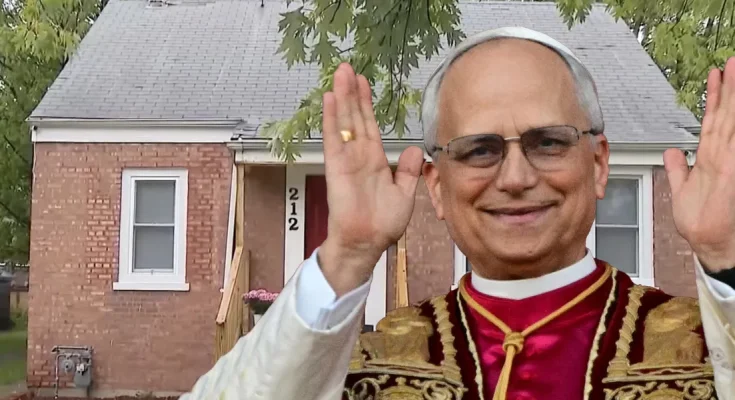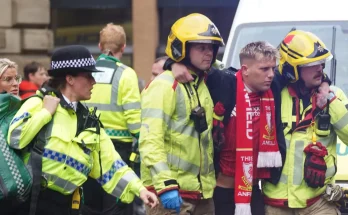He once shared a cramped Chicago home with his family. Now, Pope Leo XIV walks the frescoed halls of the Apostolic Palace — the first pontiff in over a decade to reclaim the traditional papal apartment.
Before the gold Fisherman ring and electric popemobile, there was a rusted stove in Peru, a modest seminary dorm, and a small family home near a Chicago train yard. These images capture Pope Leo XIV’s path, one room at a time.
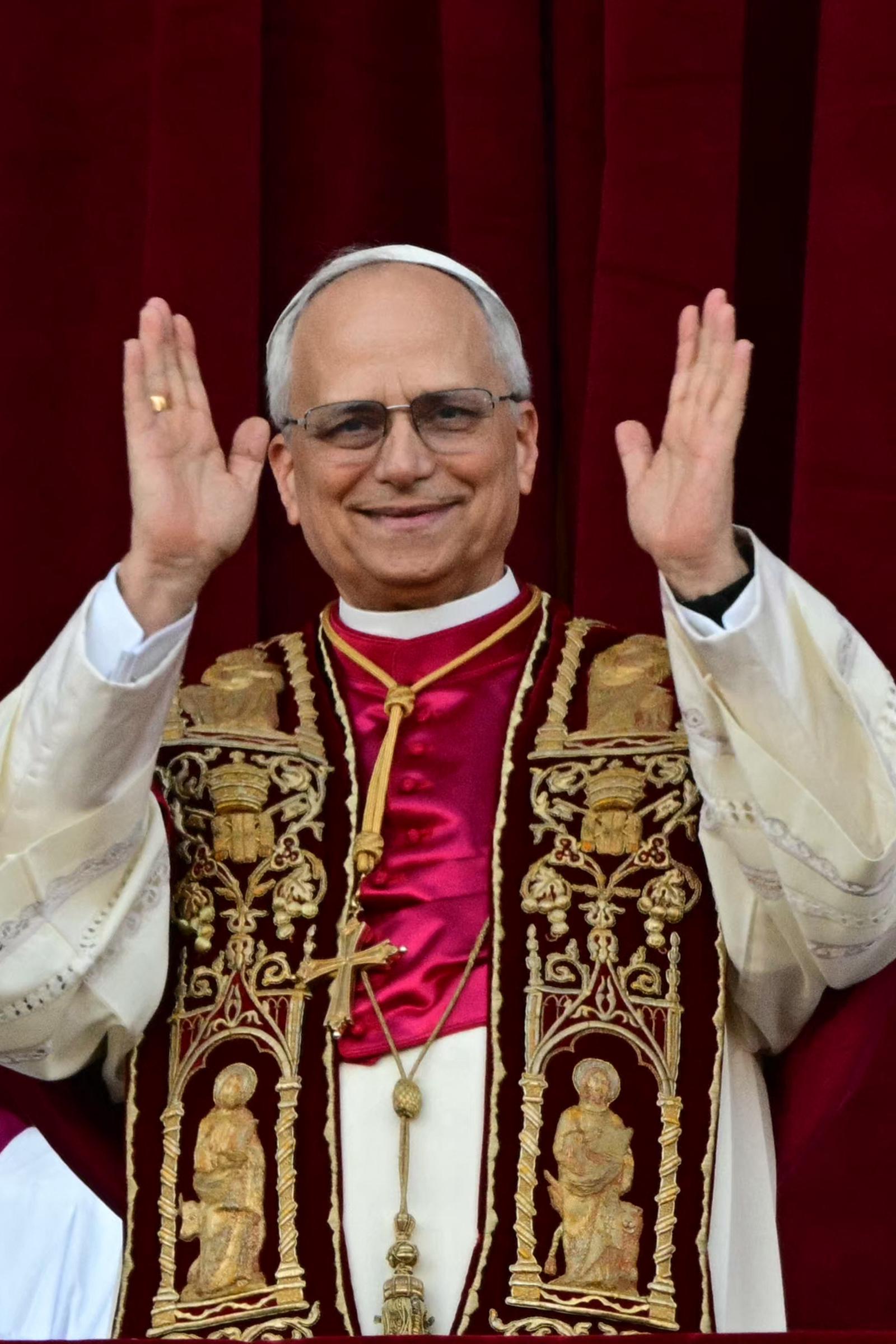
Humble Beginnings in a Chicago Suburb
Tucked away in the quiet suburb of Dolton, just outside Chicago, stands the unassuming brick cottage of Pope Leo XIV’s childhood home.
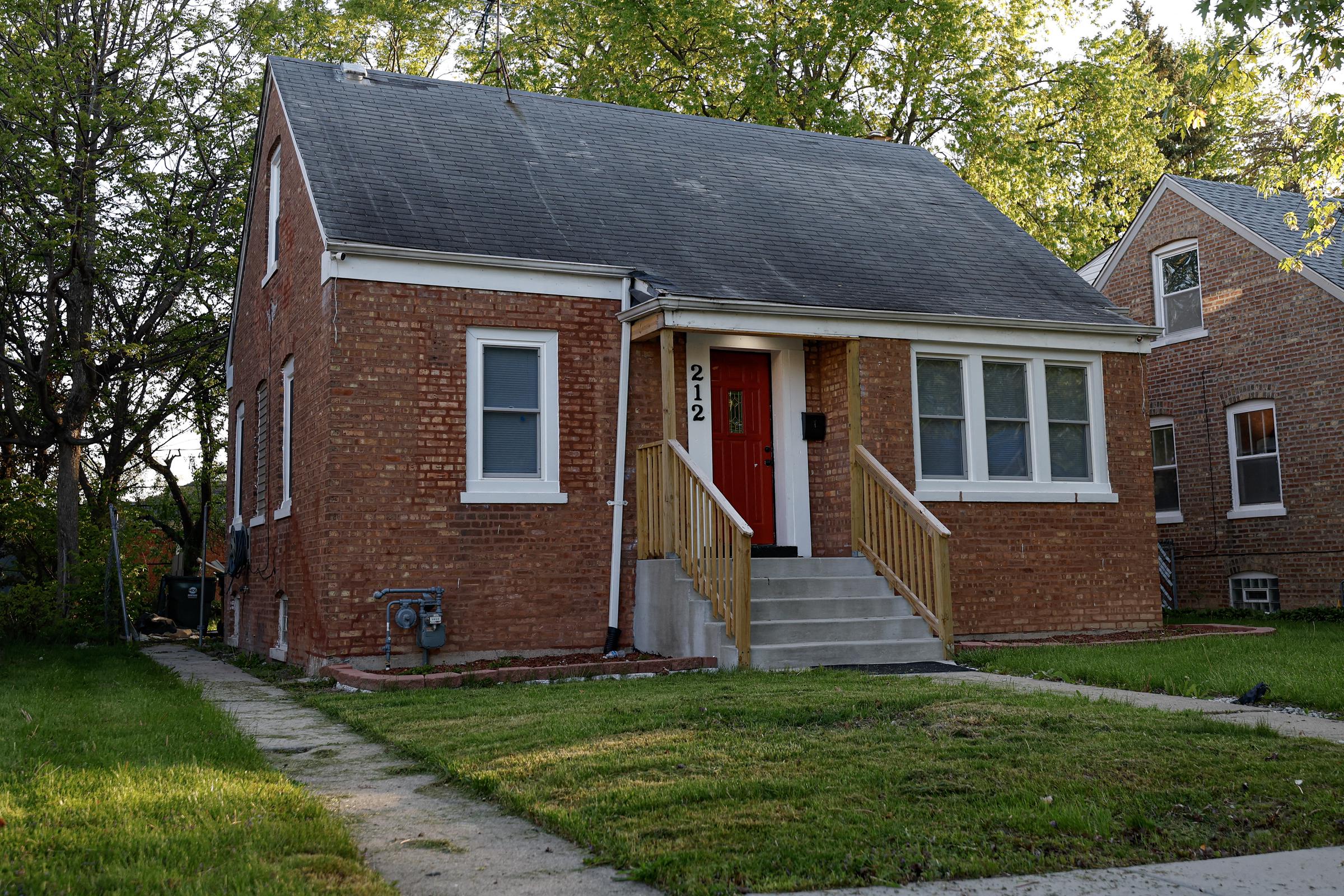
Born Robert Prevost, the youngest of three brothers, he grew up in this modest home long before his path led to the Vatican.
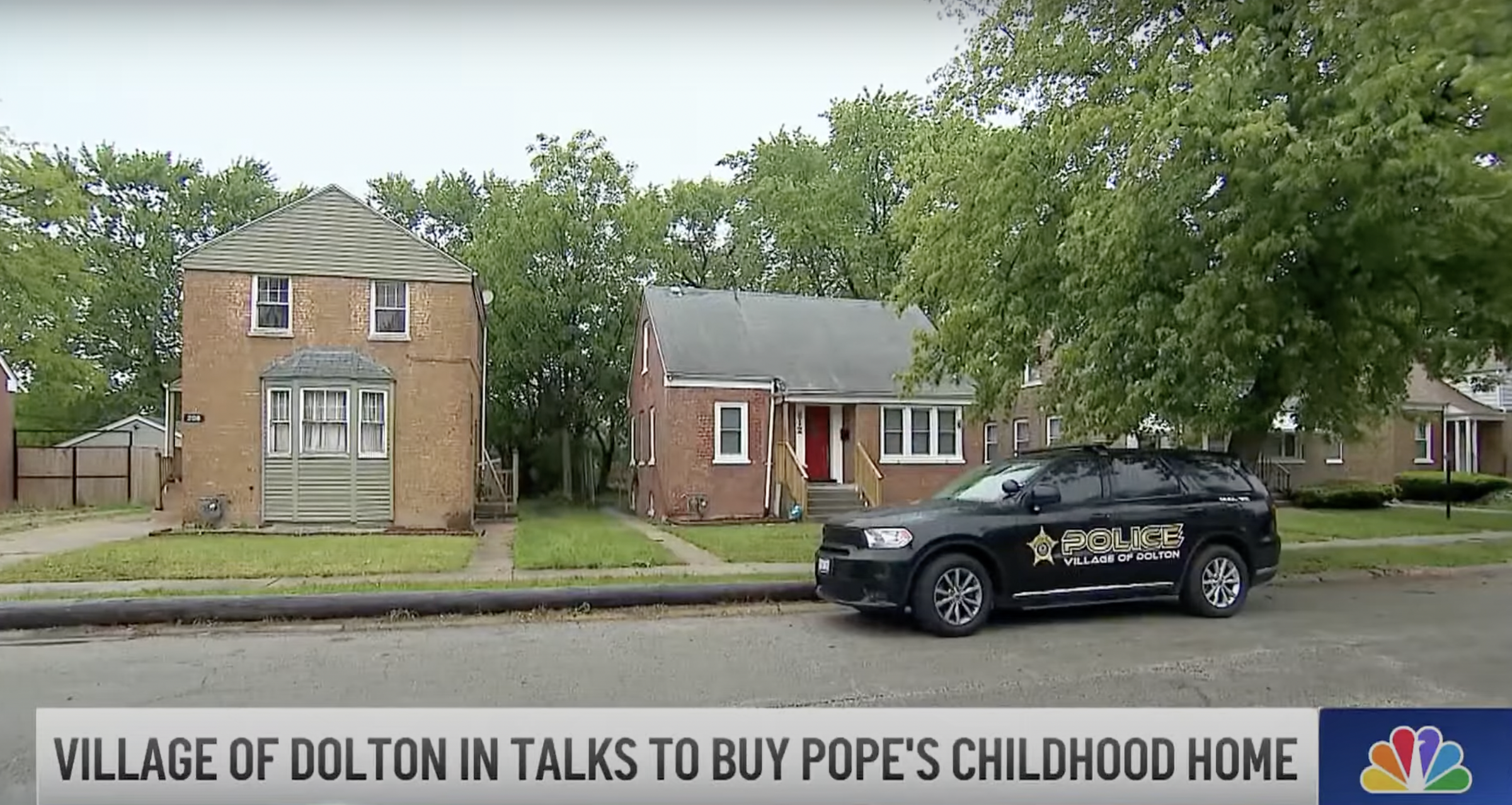
This red-brick cottage on a tree-lined street is where the Pope spent his early years.
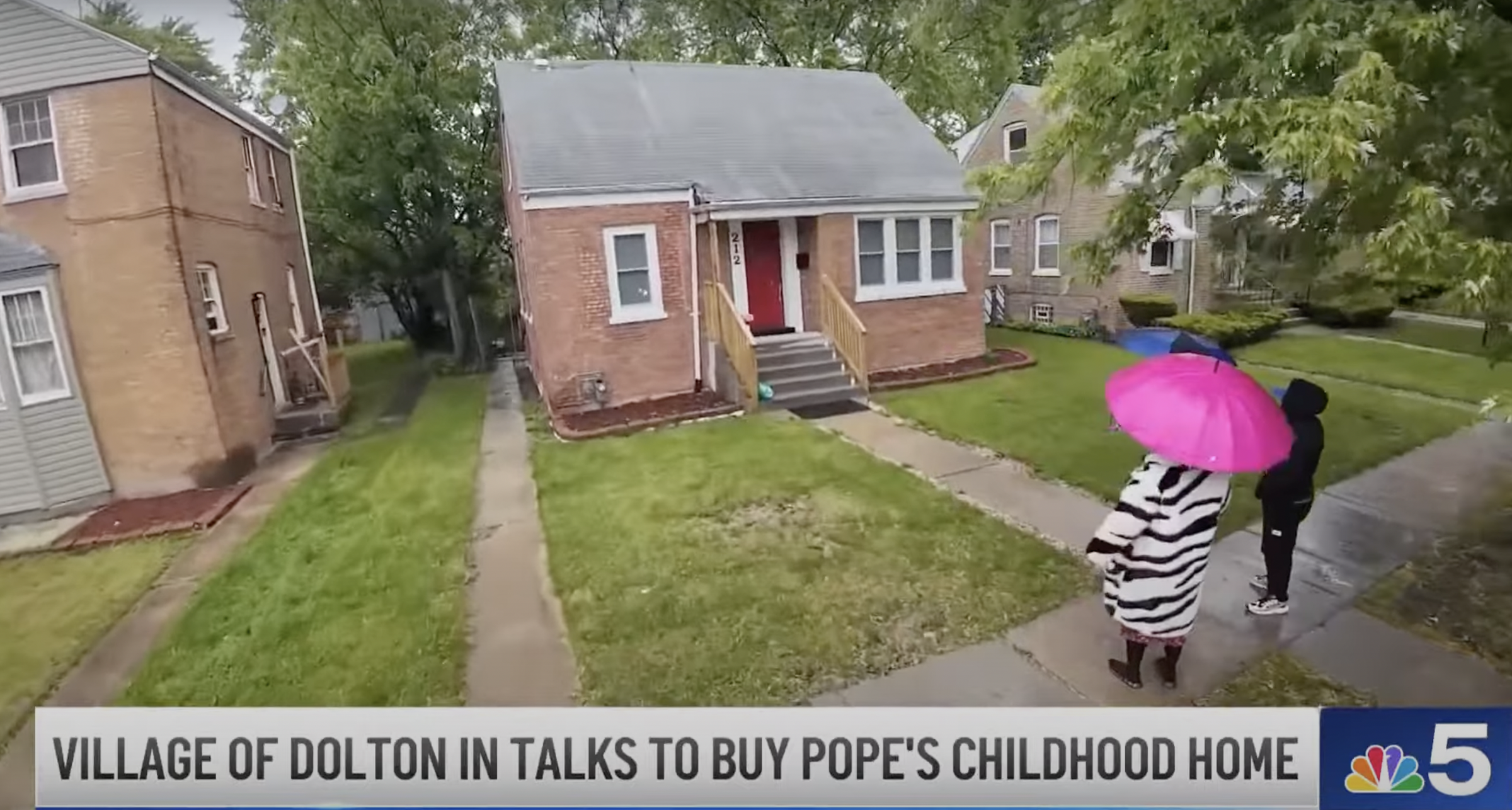
Onlookers gather outside the house at 212, as the Village of Dolton enters talks to purchase the property where the future pope once lived.
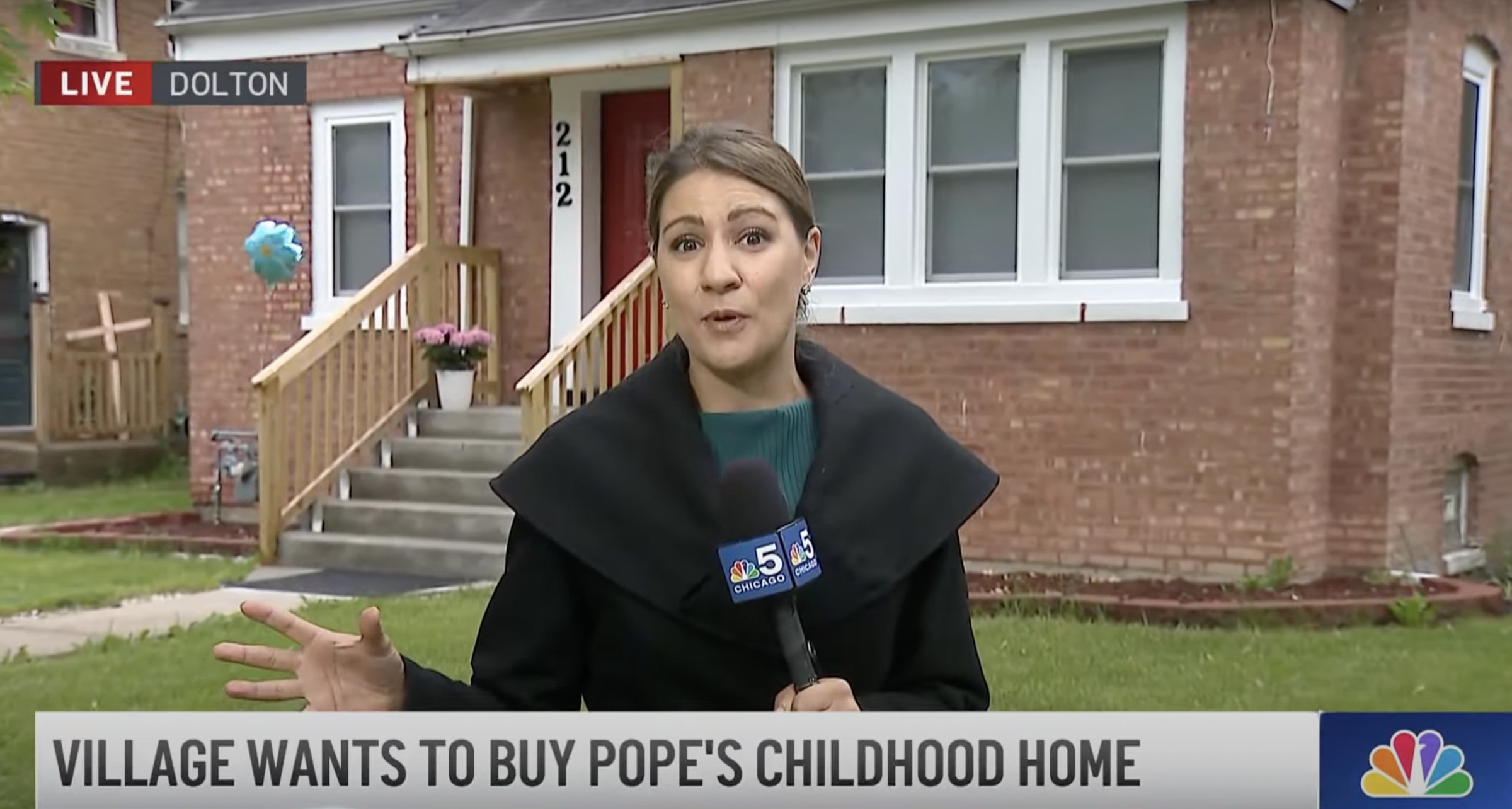
With growing calls to preserve it, the house may soon join the ranks of other protected childhood homes of prominent American figures.
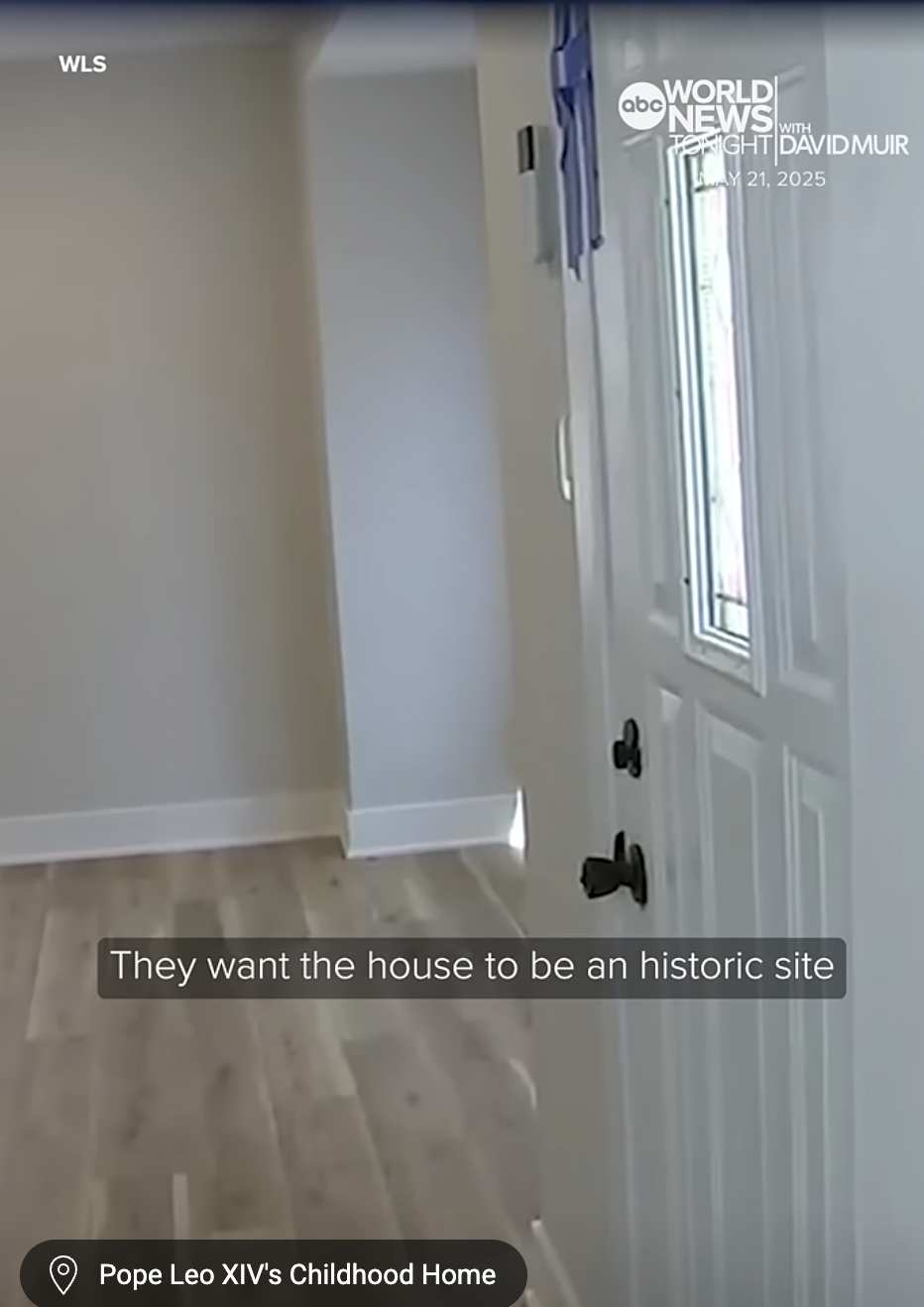
Now attracting national attention, the unassuming three-bedroom house where Pope Leo XIV grew up has quickly become a point of pride and pilgrimage
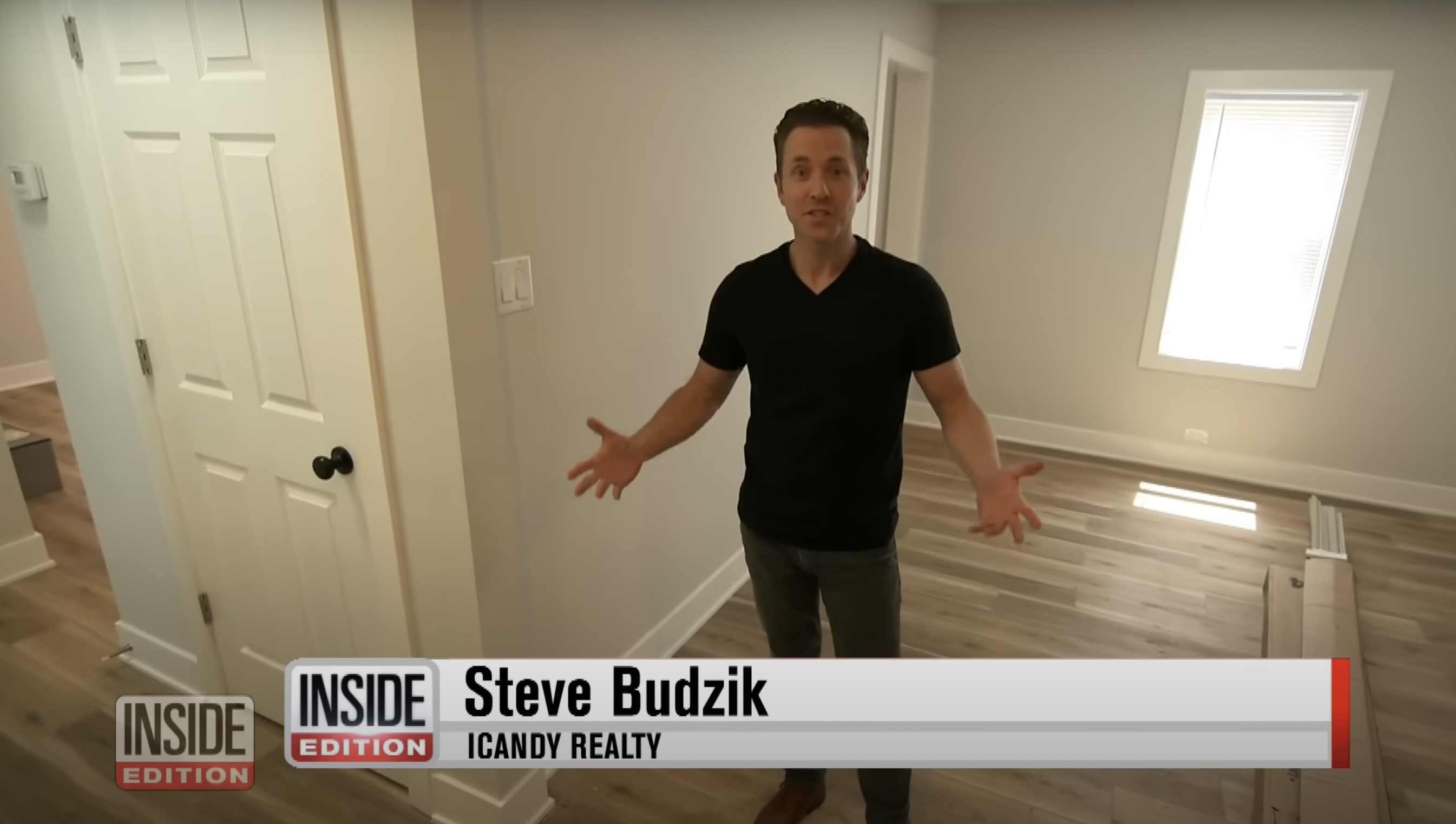
The modest entryway opens into a bright and simply finished space, reflecting the unadorned charm of a working-class American home.
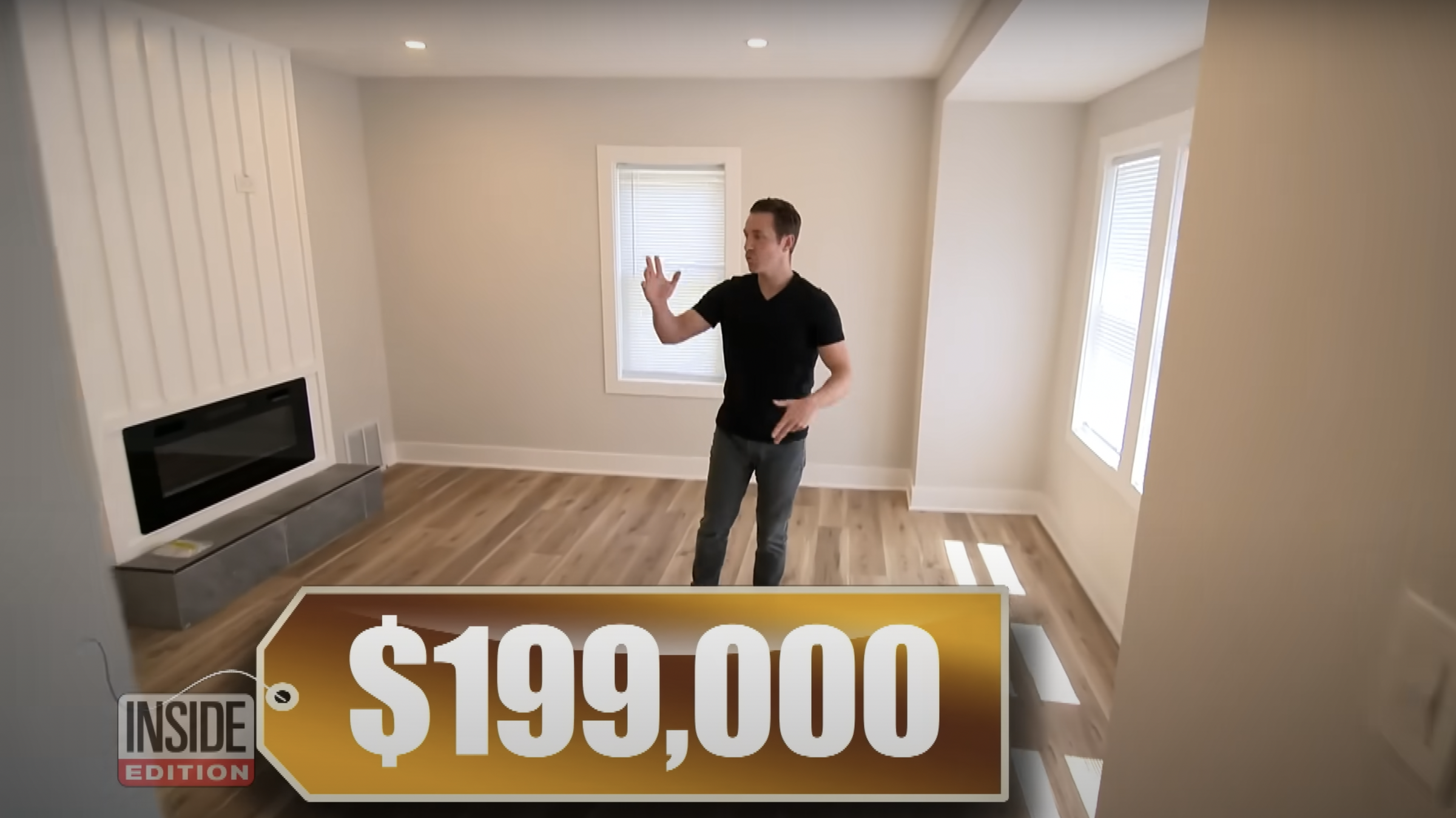
Initially listed for $199,000, the now-famous home has sparked a surge of interest and significantly higher offers.
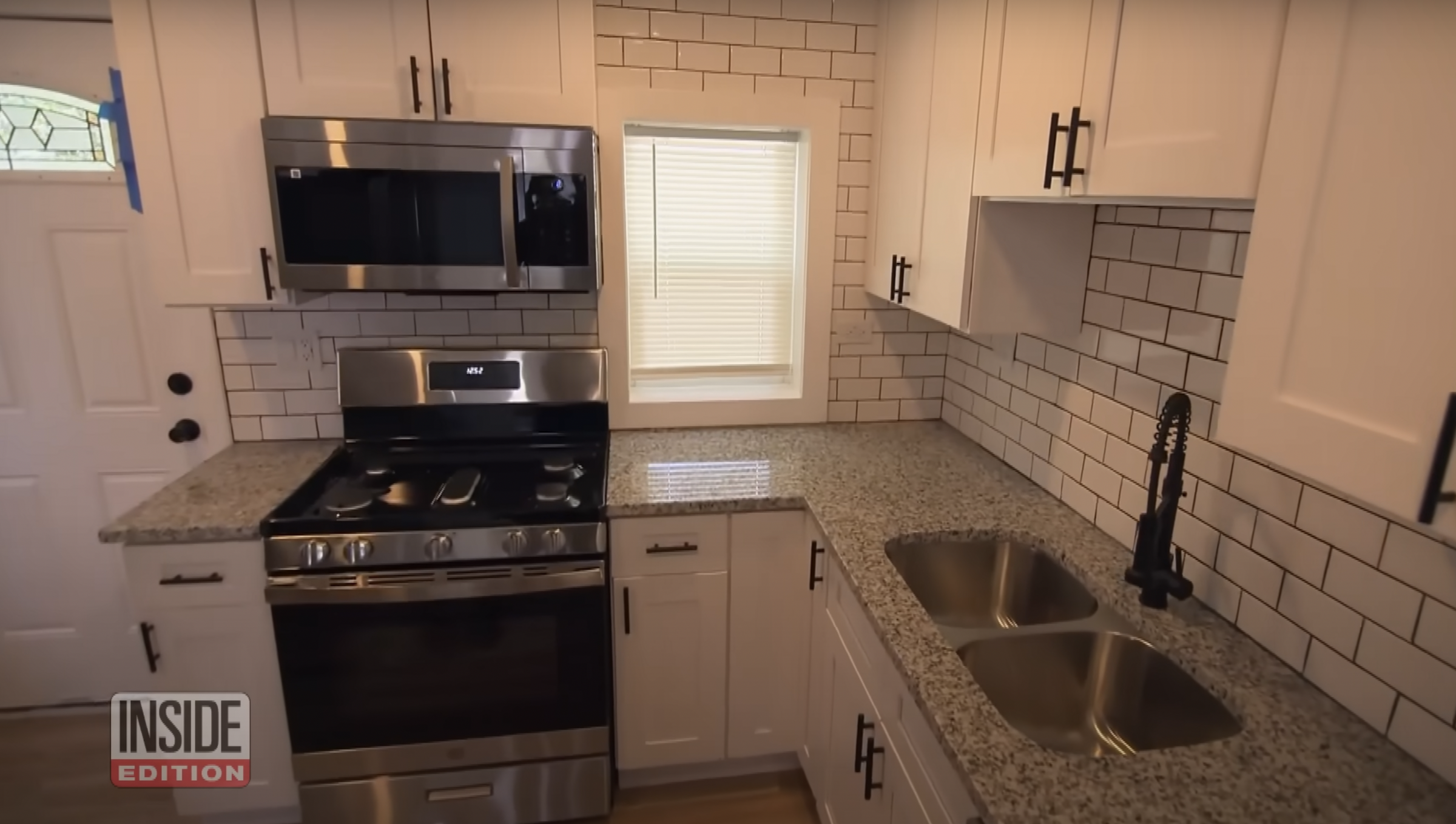
The small kitchen has been outfitted with modern finishes, but it’s easy to imagine the Prevost family sharing simple meals here decades ago.
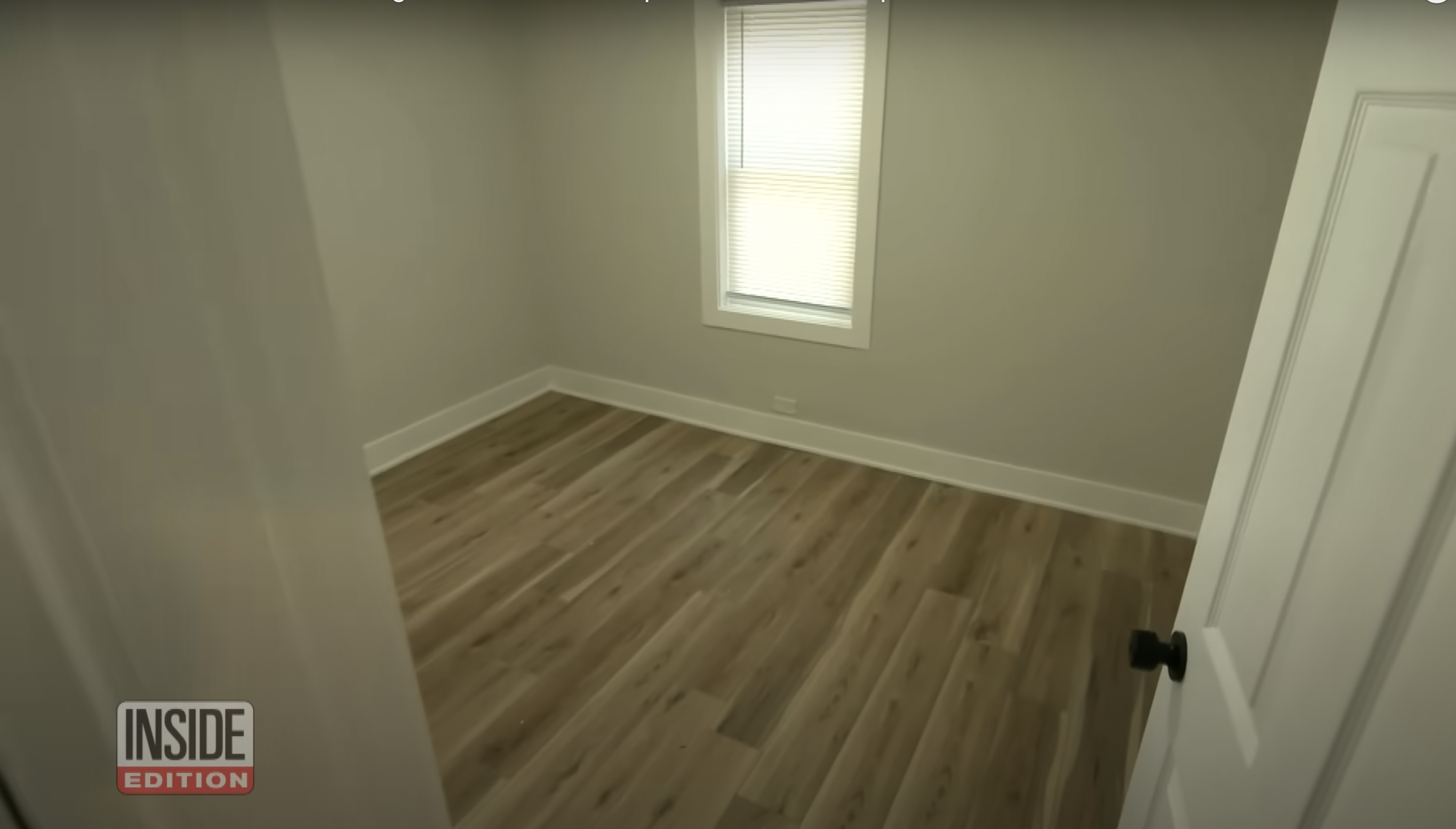
This small downstairs room is believed to have served as the parents’ bedroom, grounding the home’s compact design in practical, shared living.
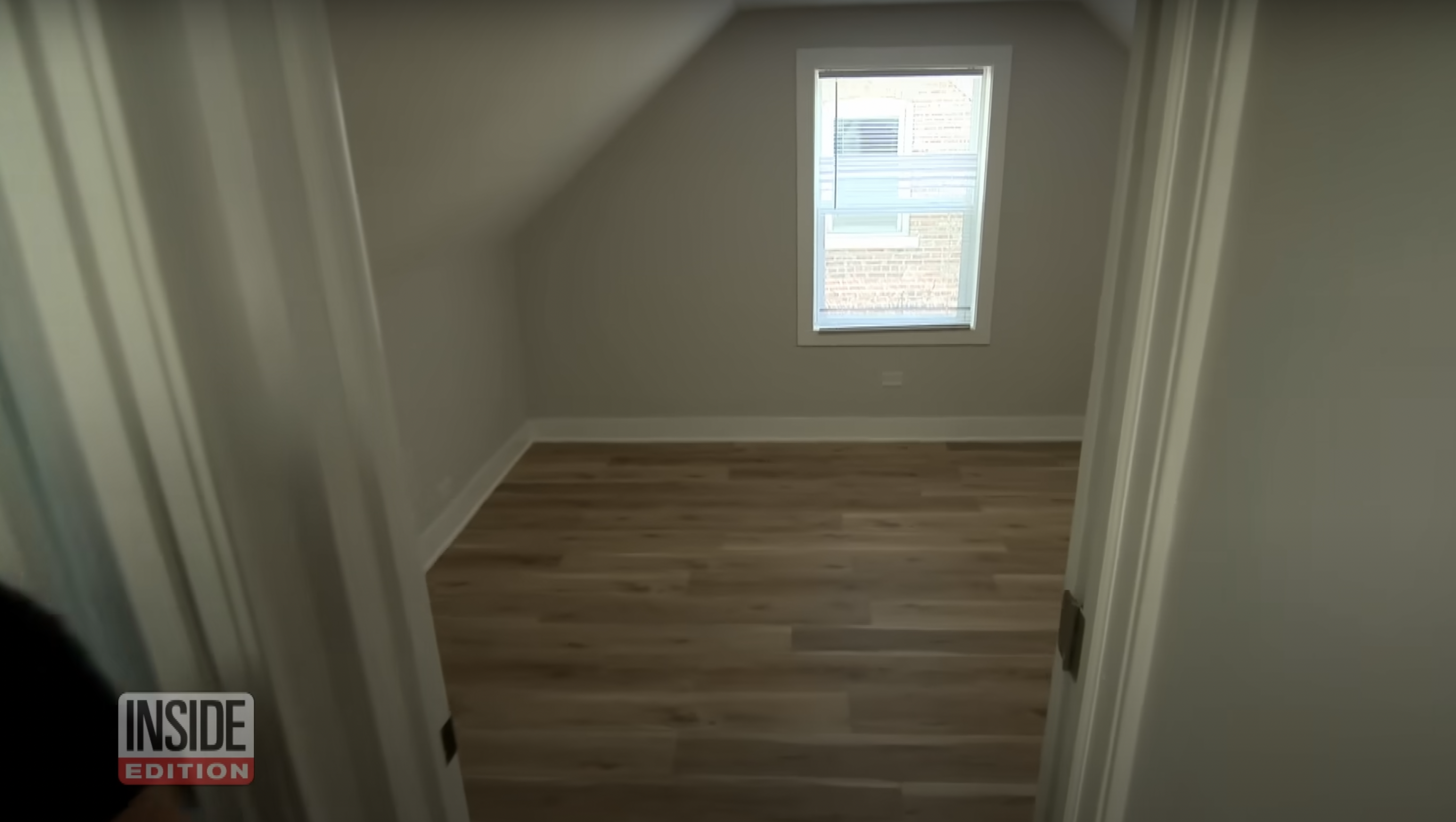
This simple upstairs room, likely once shared by the Pope and his brothers, highlights the modest beginnings of a man now leading the Catholic Church.
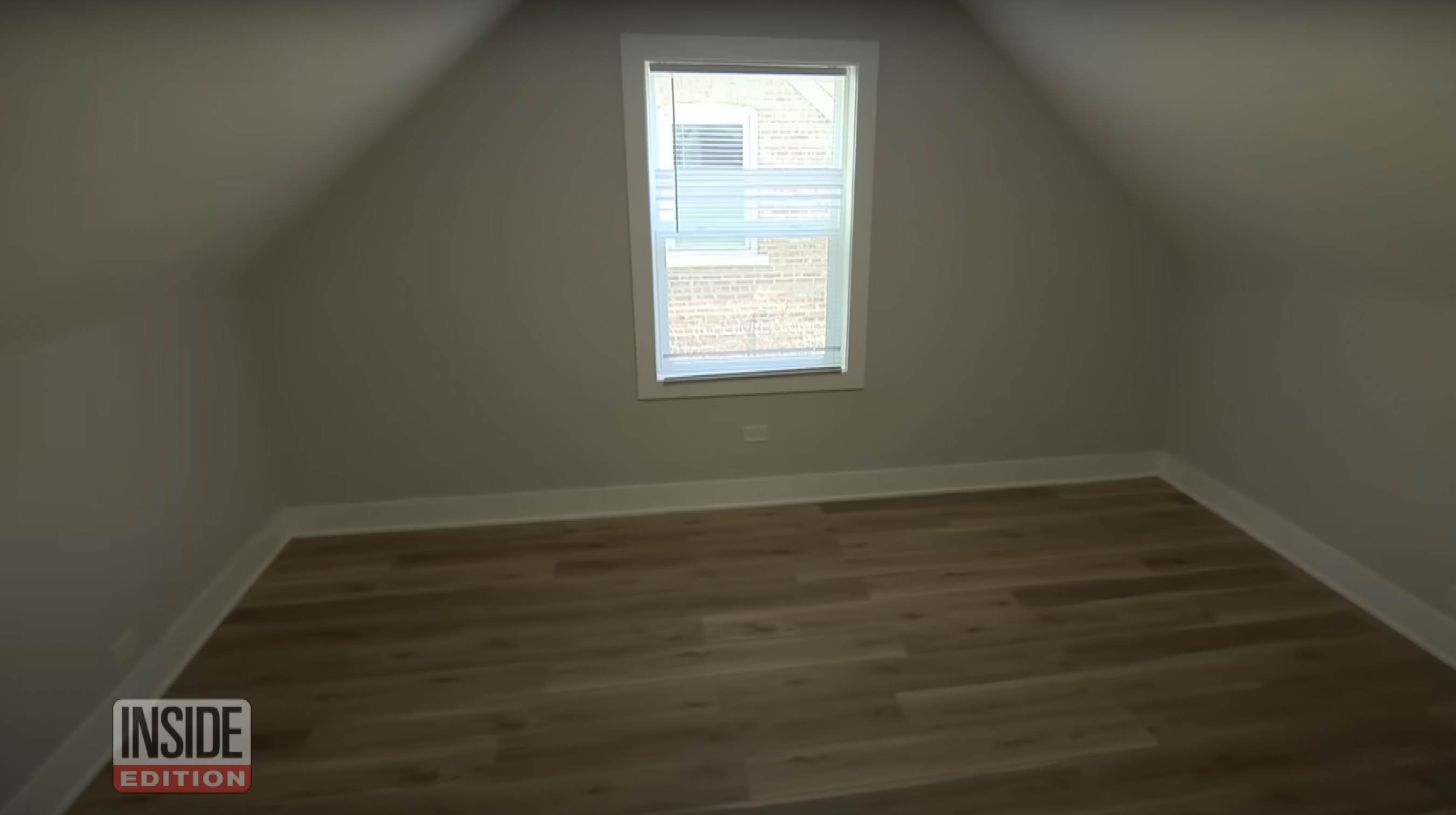
With its clean lines and natural light, the home’s third bedroom has been modernized but retains the quiet intimacy of a typical mid-century family home.
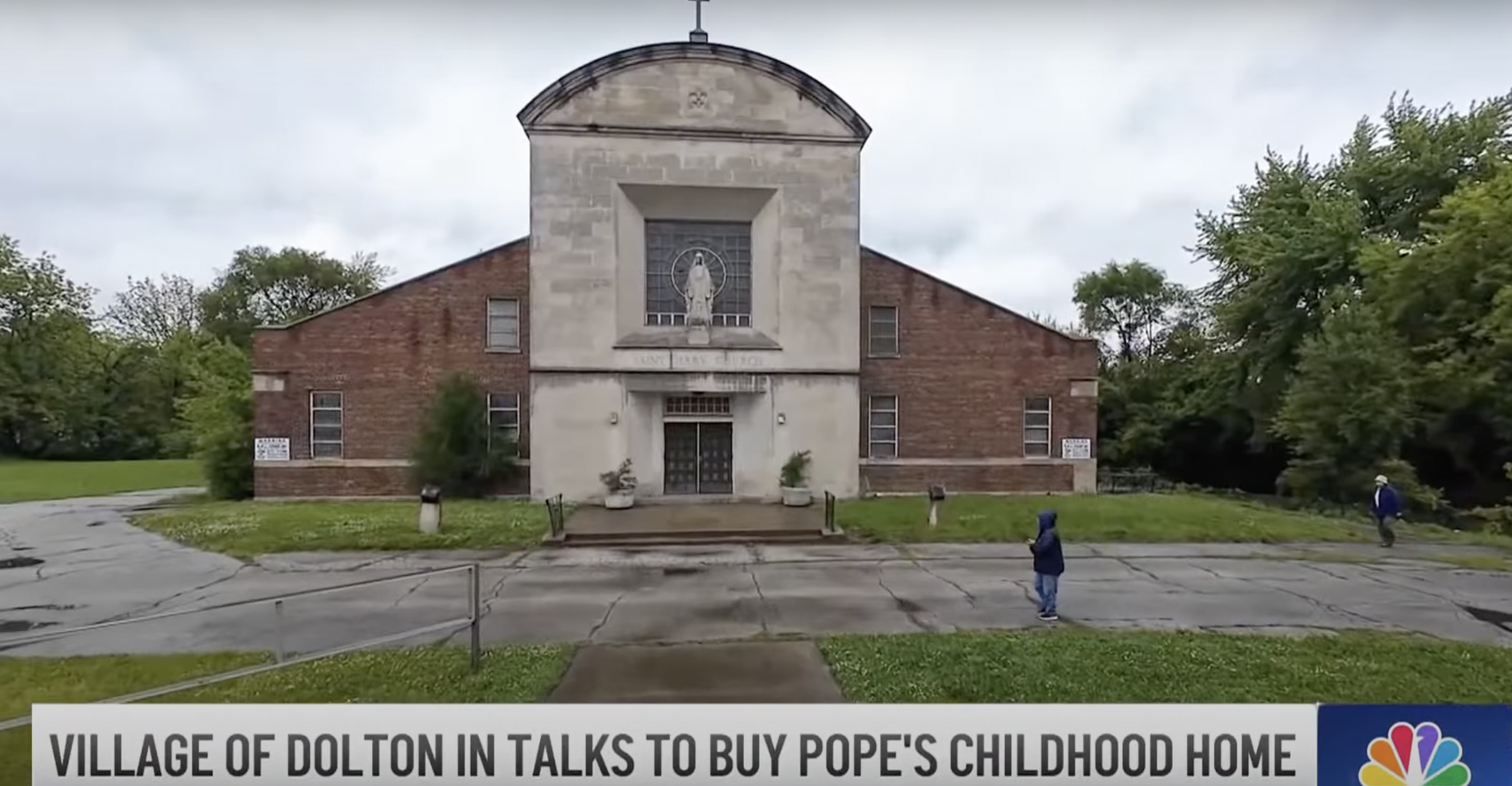
Just blocks from his childhood home, the now-closed St. Mary of the Assumption Church and school — where Pope Leo XIV studied as a boy — may soon gain protected landmark status.
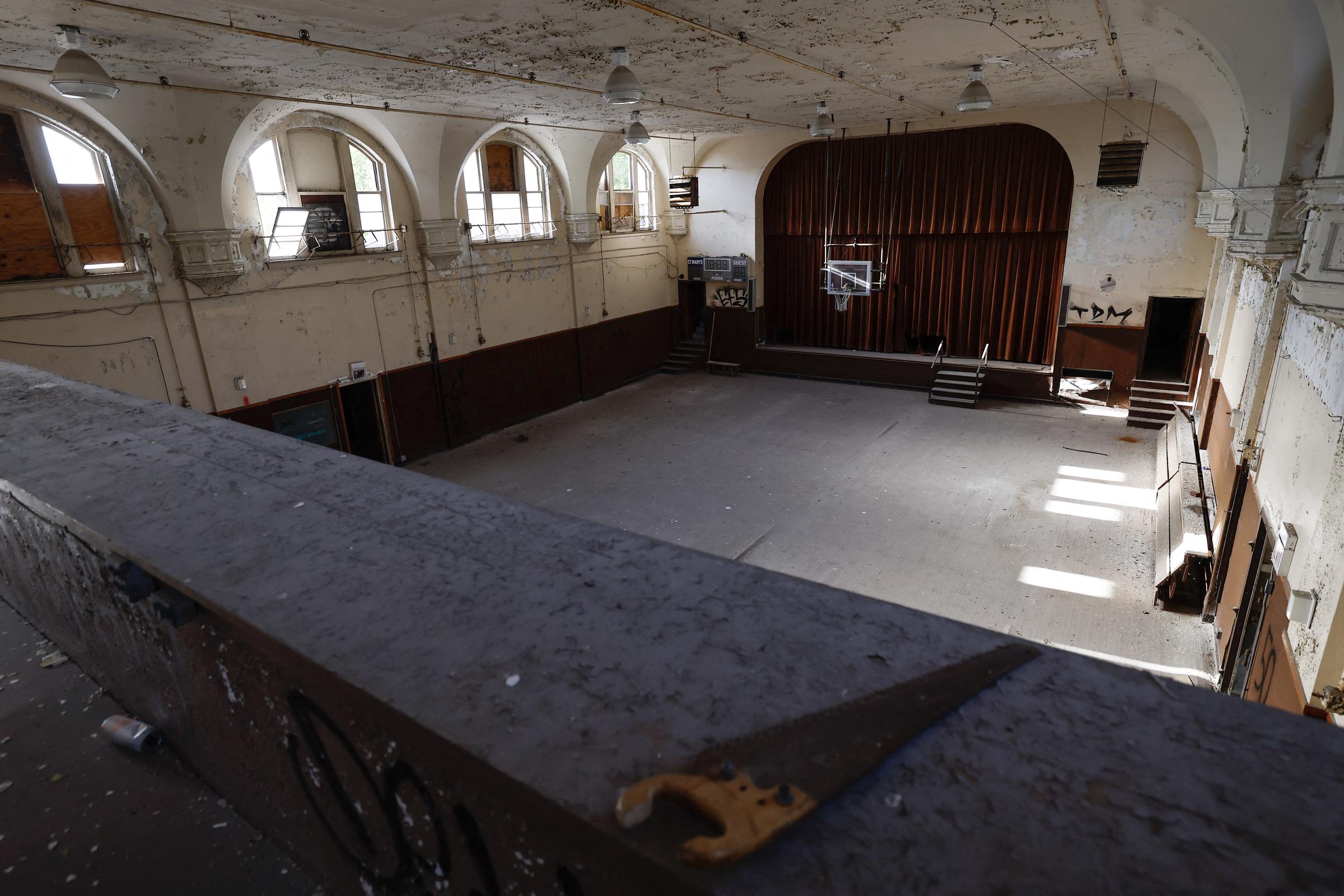
Though his original school has since closed, the spirit of community education lives on in local Catholic institutions like St. Benedict’s.
A Life of Service in Peru
Pope Leo XIV spent more than two decades living and serving in Peru, alternating between the cities of Trujillo and Chiclayo. First arriving in the 1980s as a young missionary, he would go on to lead a seminary in Trujillo and later serve as bishop of Chiclayo.
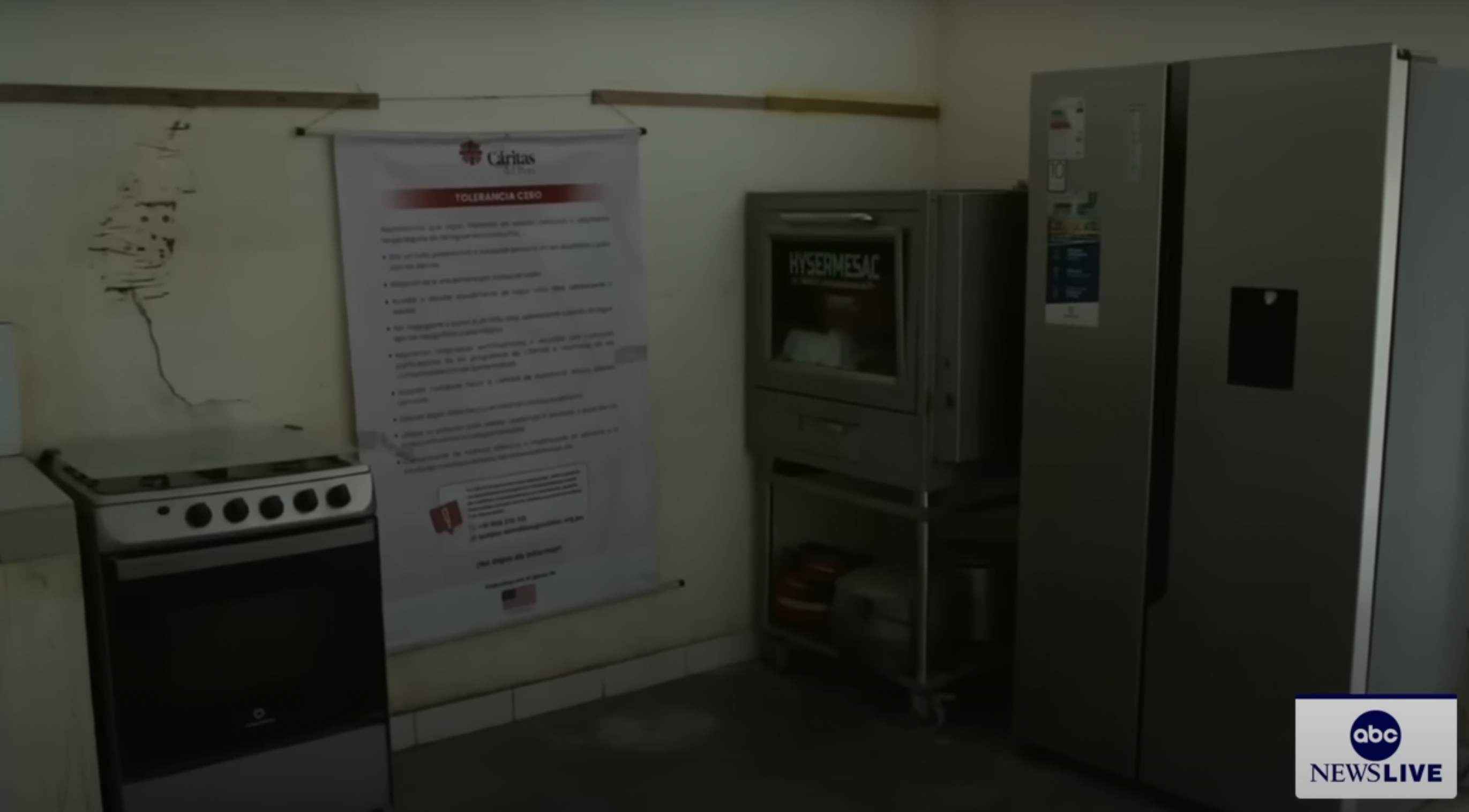
This basic kitchen, part of a local outreach initiative, was supported by Pope Leo during his missionary years. It reflects his deep concern for the marginalized and his hands-on approach to pastoral care.
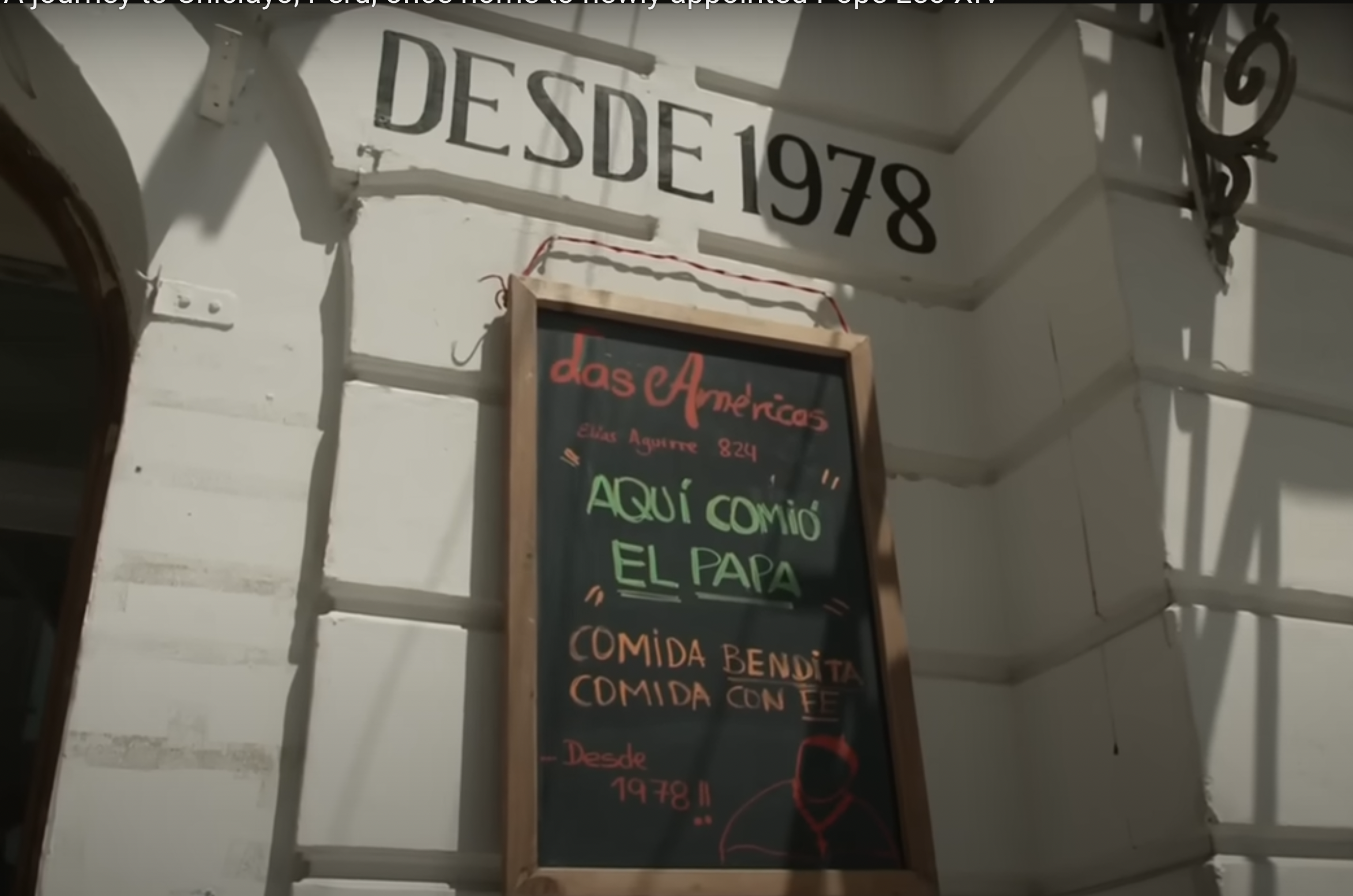
A hand-painted sign outside the restaurant “Las Américas” proudly declares, “Aquí comió el Papa” —”The Pope ate here.”
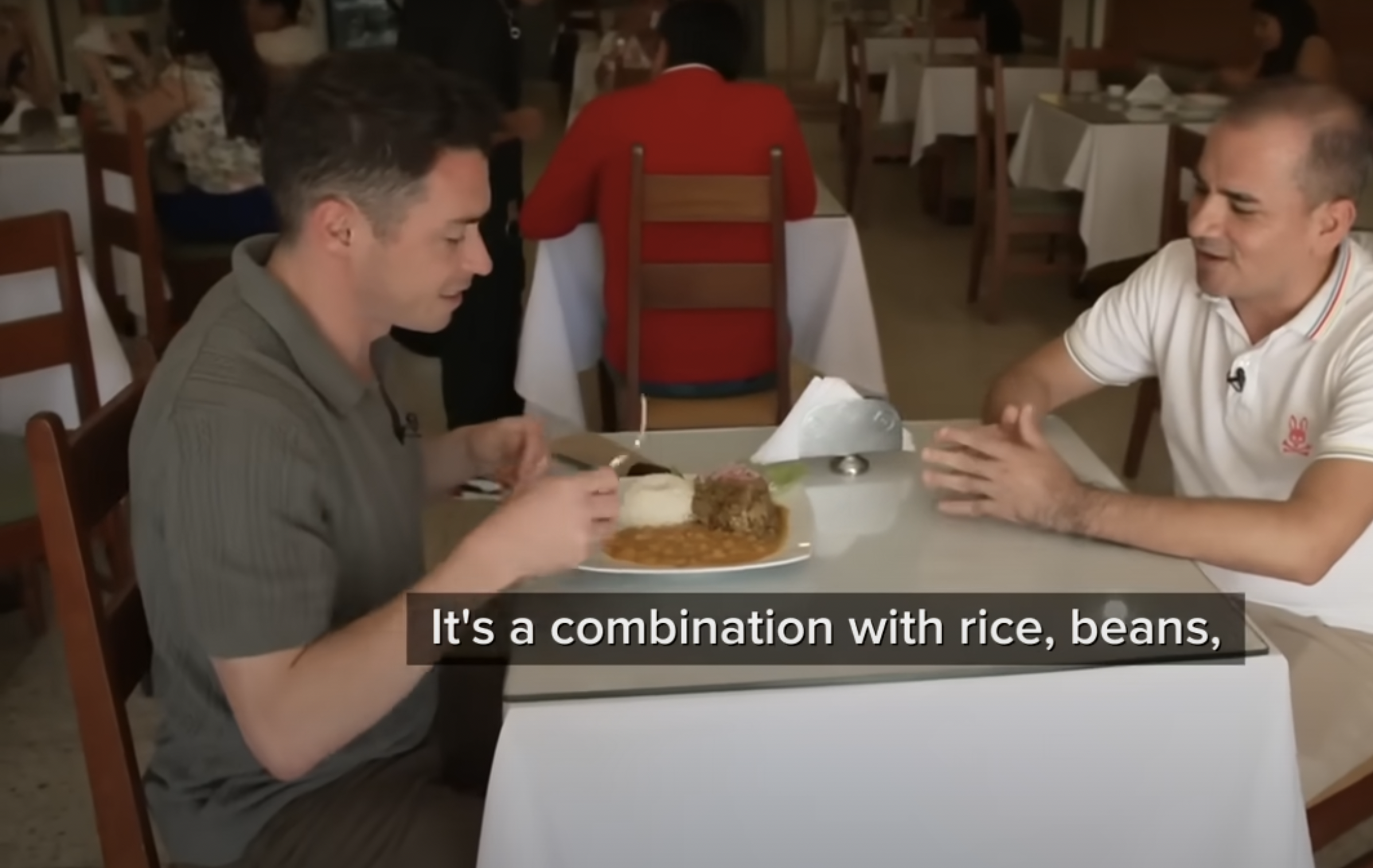
Inside the restaurant, visitors still order the dish Pope Leo loved — a hearty plate of rice, beans, and seasoned goat meat.
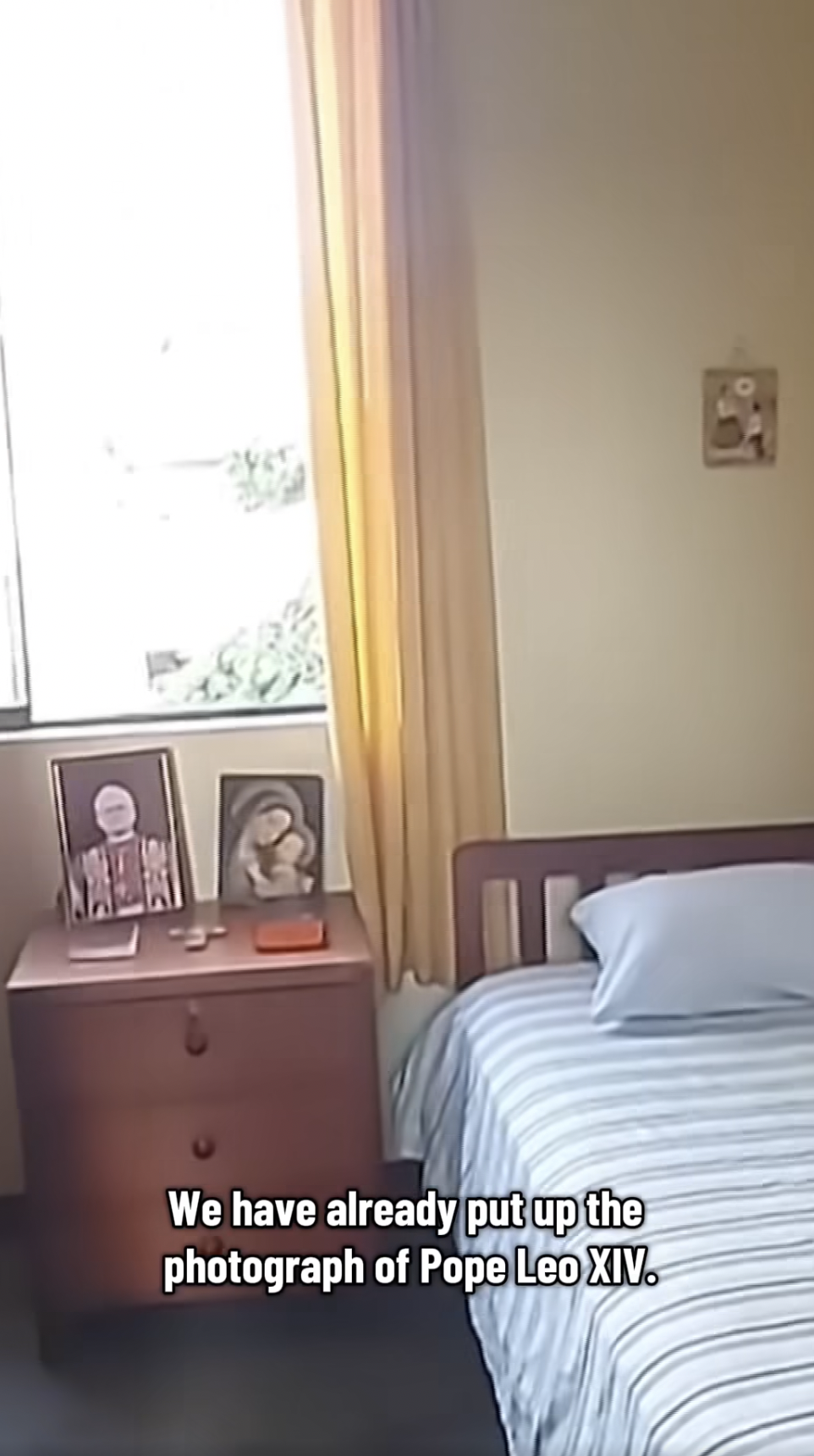
This modest room in Trujillo once housed Pope Leo XIV during his years running an Augustinian seminary. The space, now adorned with his photograph, reflects the quiet discipline and spiritual devotion that marked his mission work there.
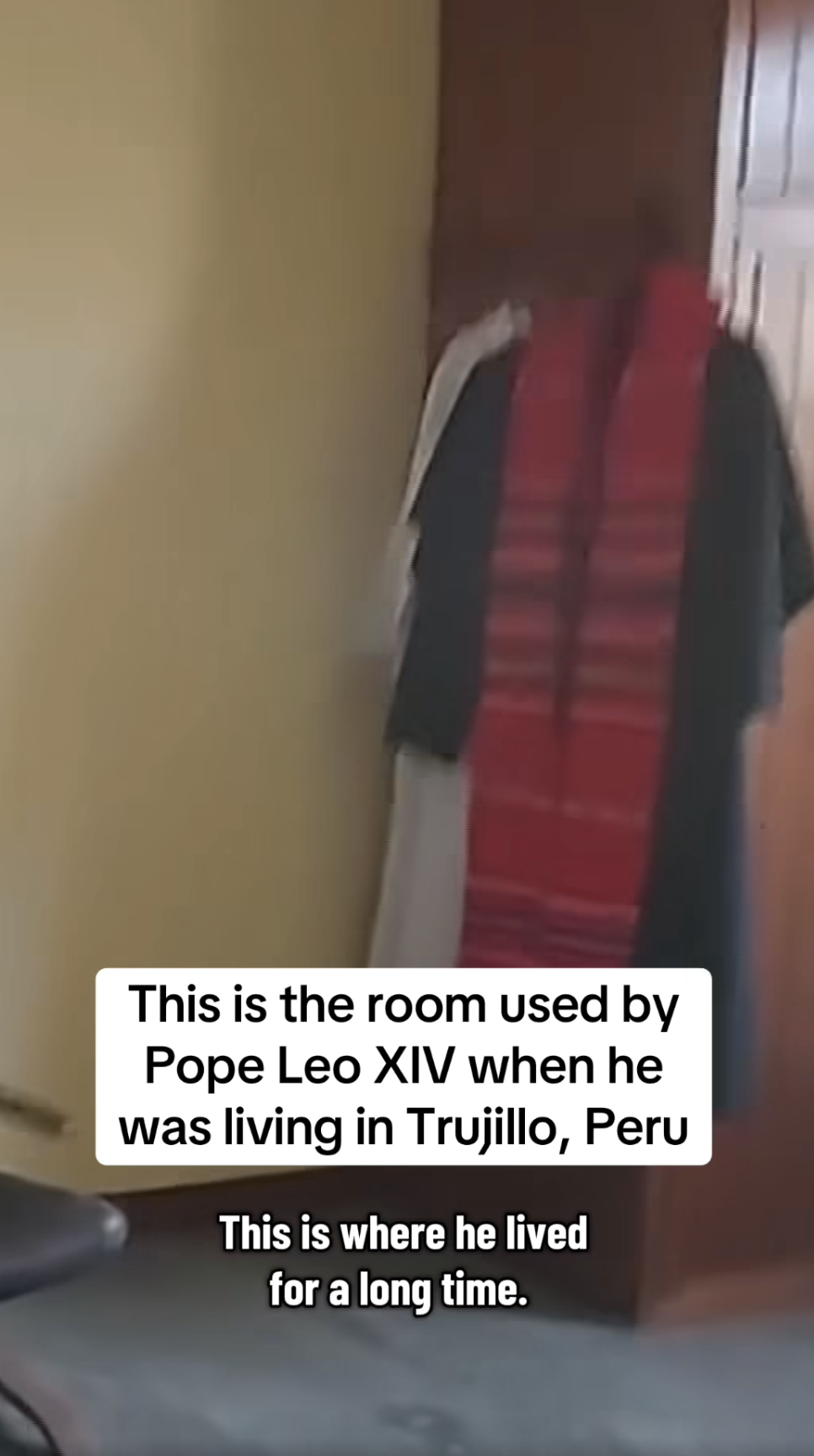
A priest’s robe still hangs in the corner, a visual reminder of the daily rhythms of religious life that shaped his long stay in Trujillo.
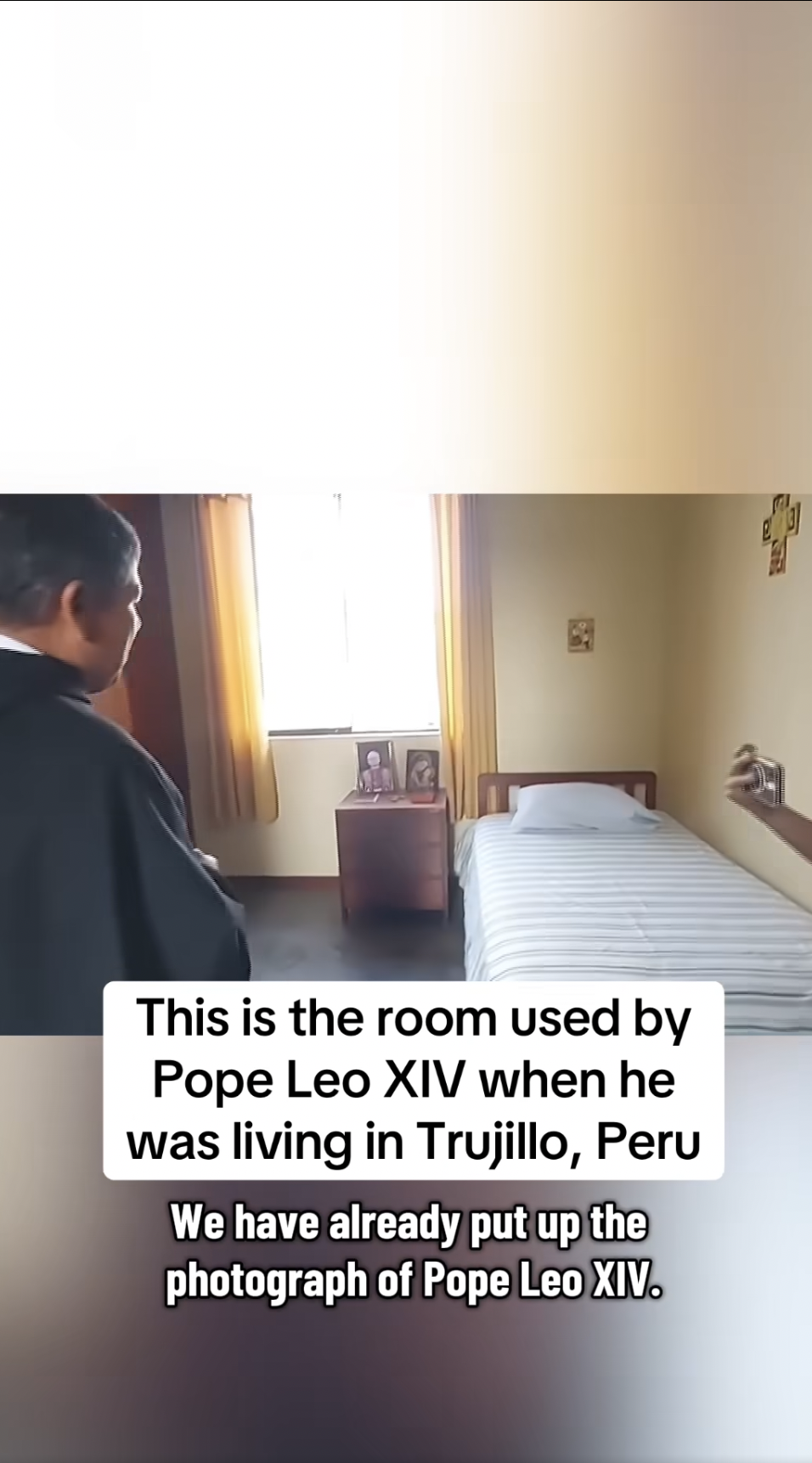
With little more than a single bed, a nightstand, and a crucifix on the wall, the room where Pope Leo lived speaks to his vow of simplicity.
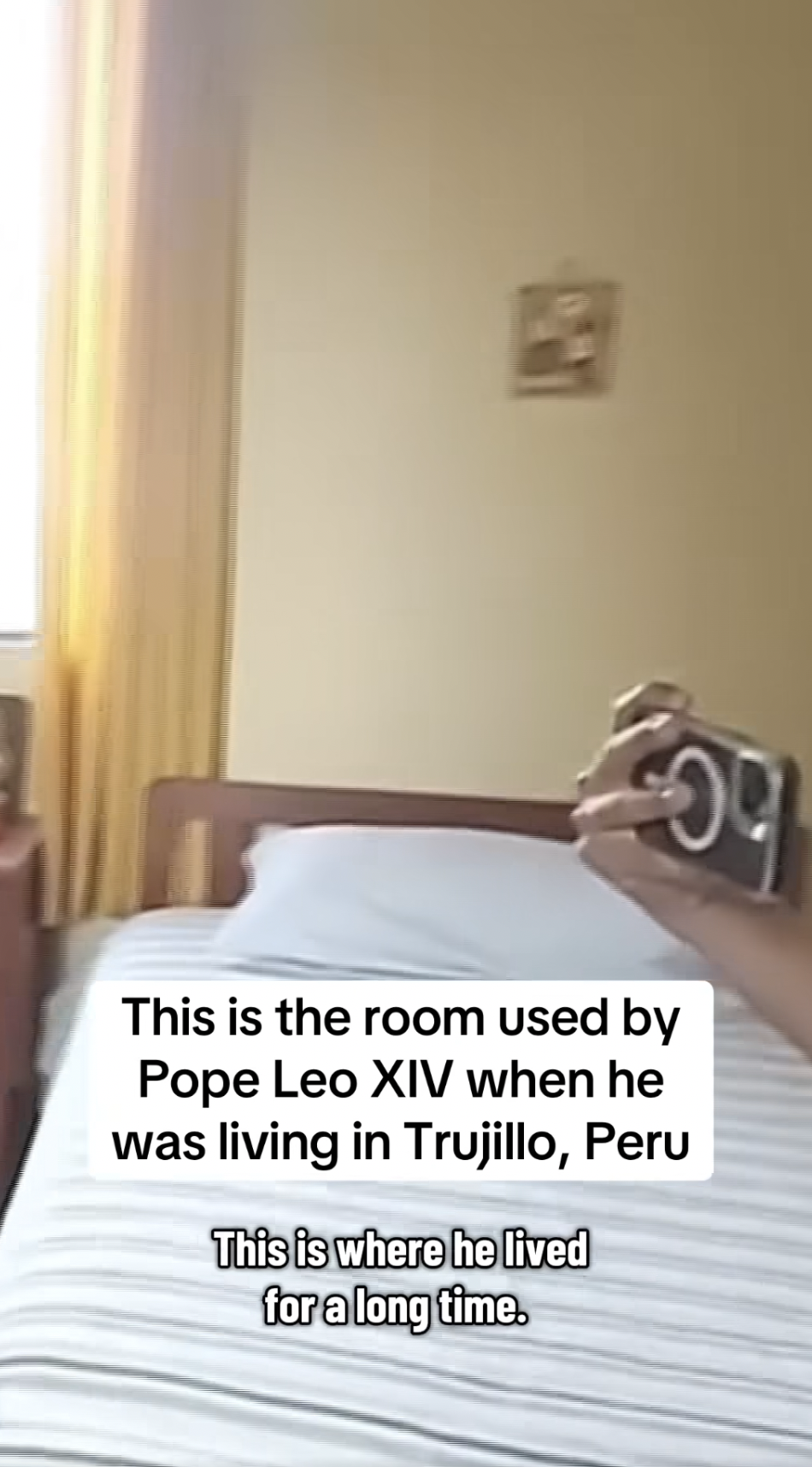
The room is spare and personal, with a photo of Pope Leo XIV now resting beside an image of the Virgin Mary — reminders of a life rooted in service, contemplation, and faith.
Years in Rome
Just steps from St. Peter’s Square, the Pontifical Augustinian Institute in Rome, Italy, served as Pope Leo XIV’s home base during his 12-year tenure as General Prior of the Augustinian order, from 2001 to 2013.
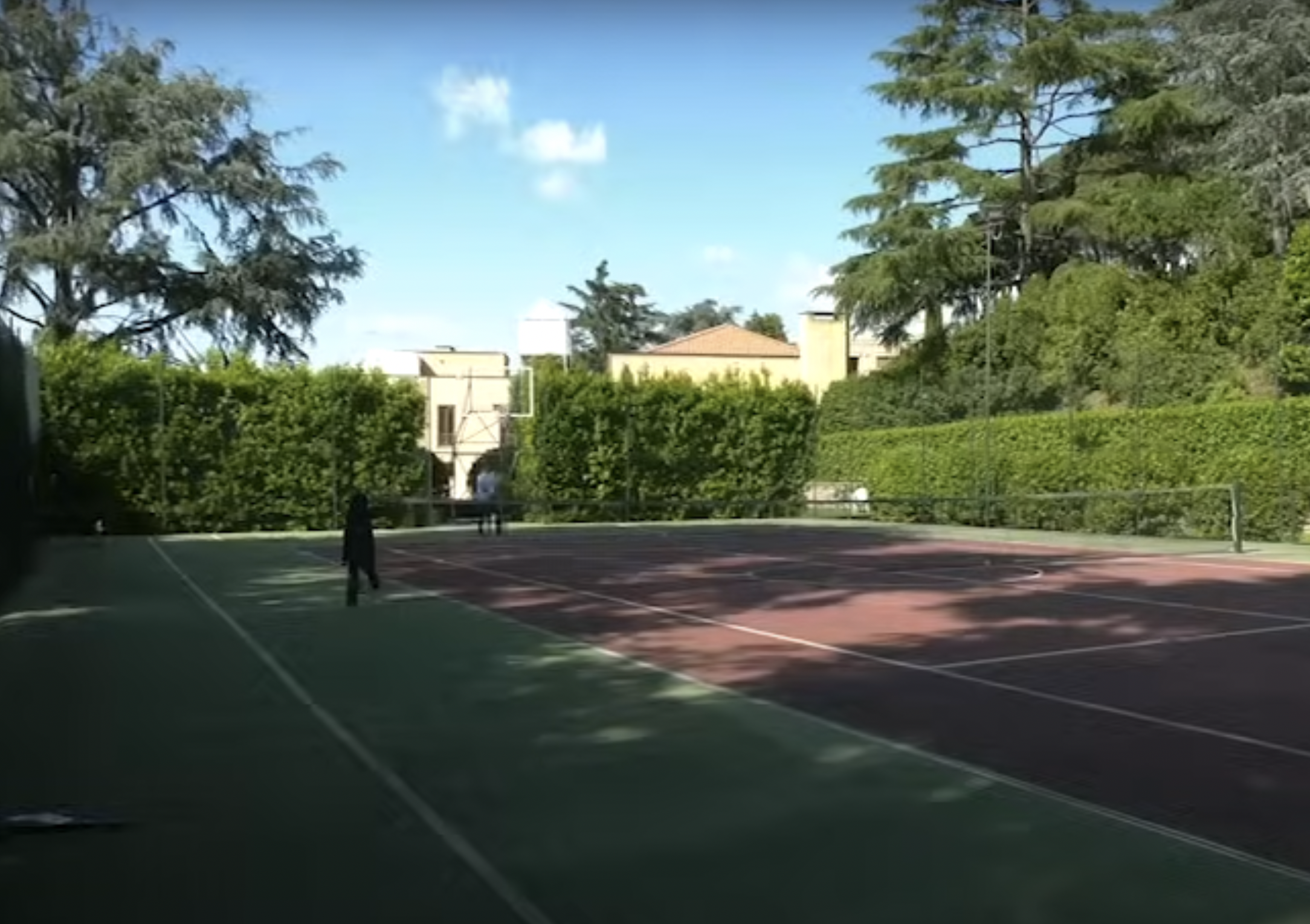
His time here was marked by intellectual leadership, global travel, and moments of leisure — including frequent matches on the institute’s tennis court, where the future pope was known for his strong backhand and quiet focus.
A New Era in the Apostolic Palace
After decades of living simply, Pope Leo XIV has now stepped into one of the most storied residences in Christendom — the Apostolic Palace in Vatican City.
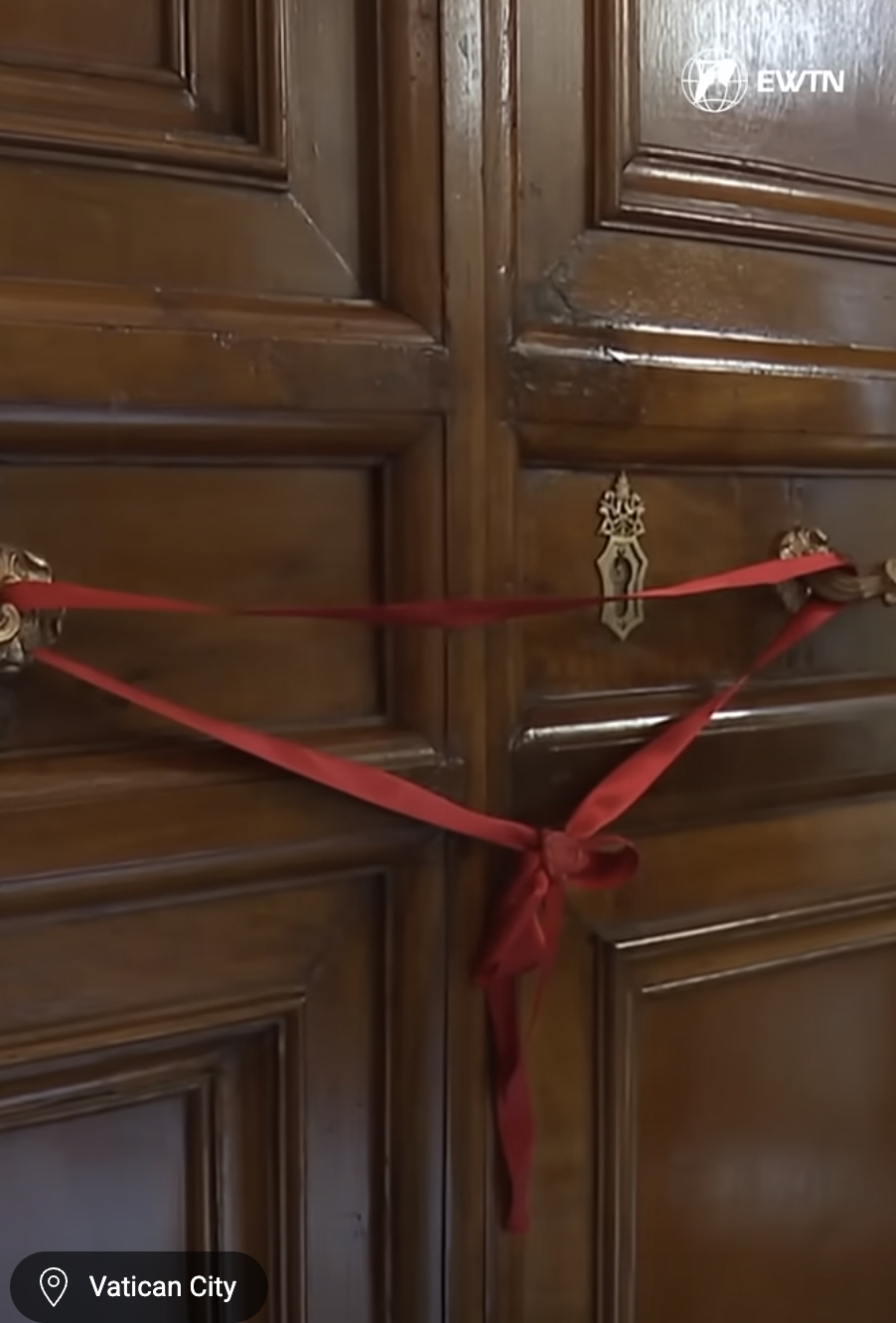
A ceremonial red ribbon marked the official reopening of the papal apartment wing — a quiet end to its years as a symbolic museum.
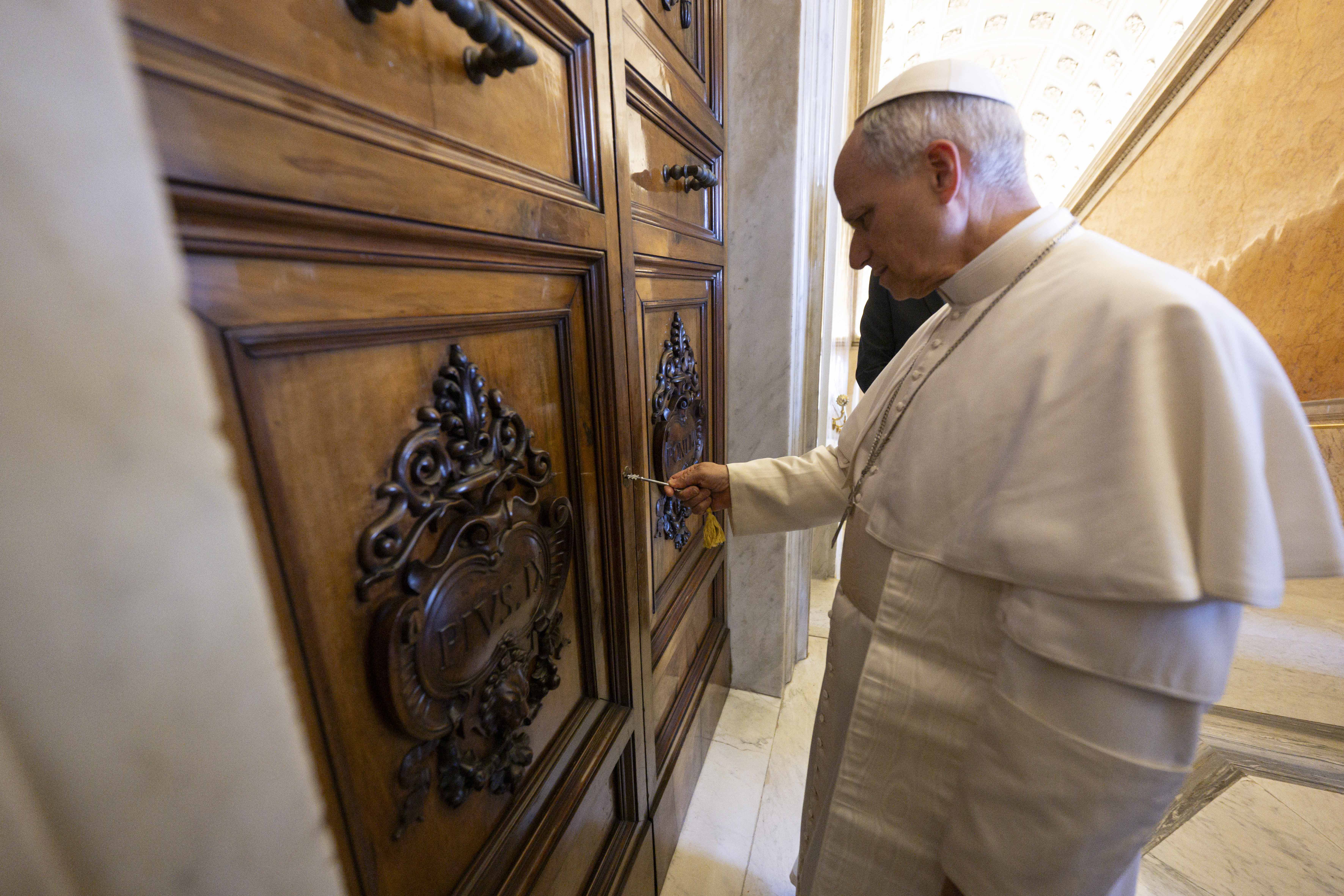
The new pope personally opened the sealed doors to the apartments, signaling a new phase of occupancy and leadership.
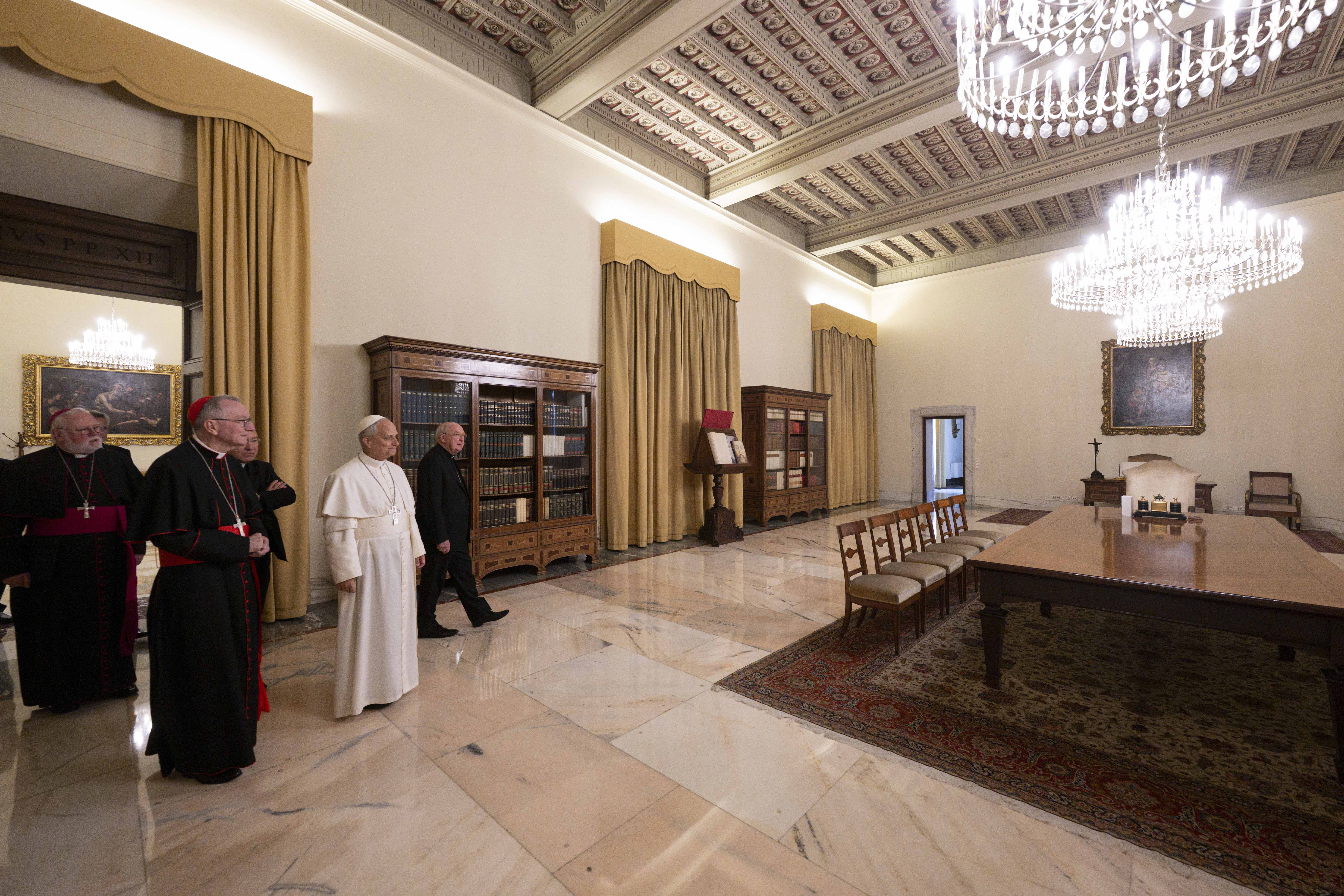
Pope Leo XIV toured his new residence inside the Apostolic Palace — once closed off for over a decade.
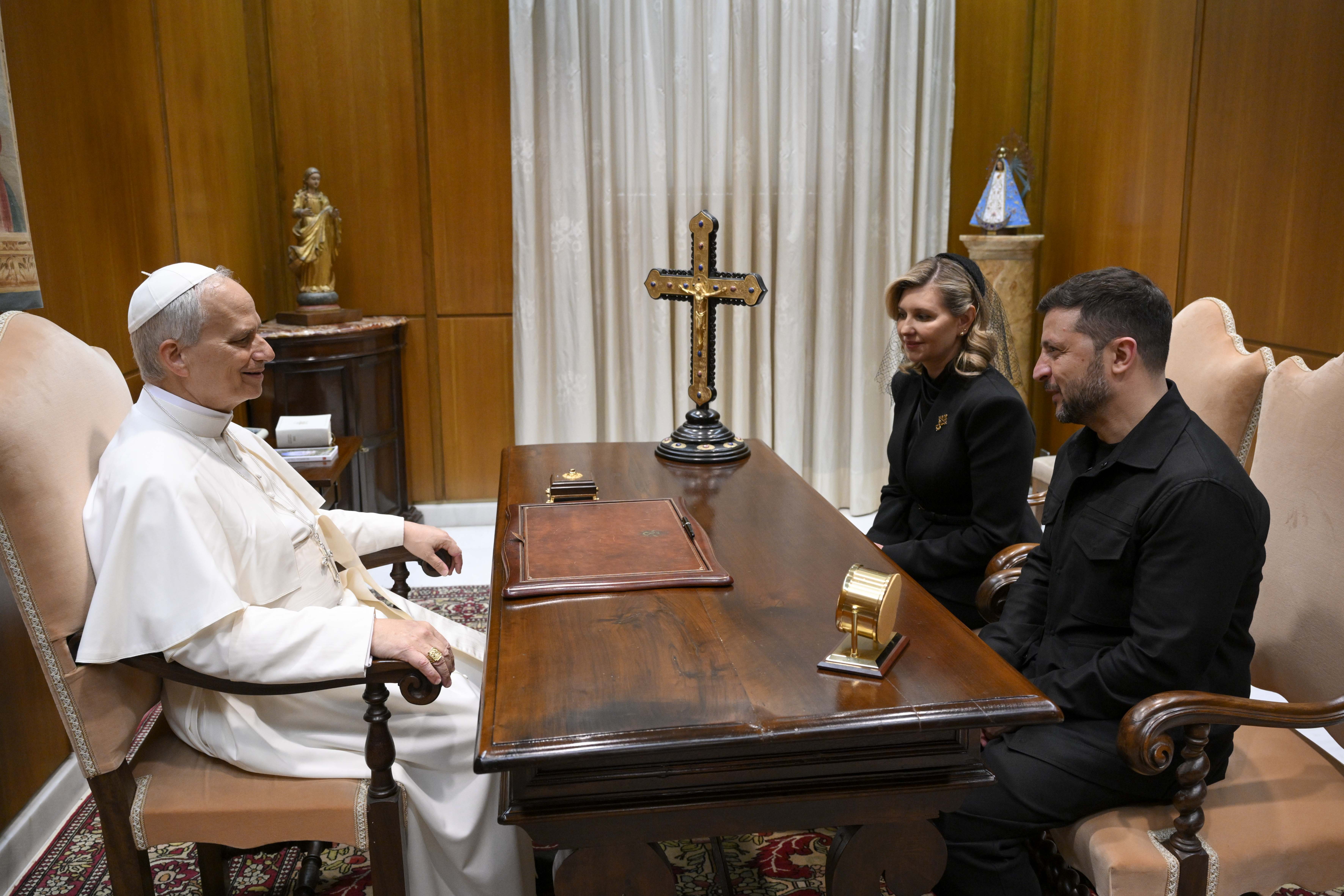
Inside one of the palace’s private reception rooms, Pope Leo XIV has met with foreign leaders — a return to formal Vatican diplomacy in its traditional setting.
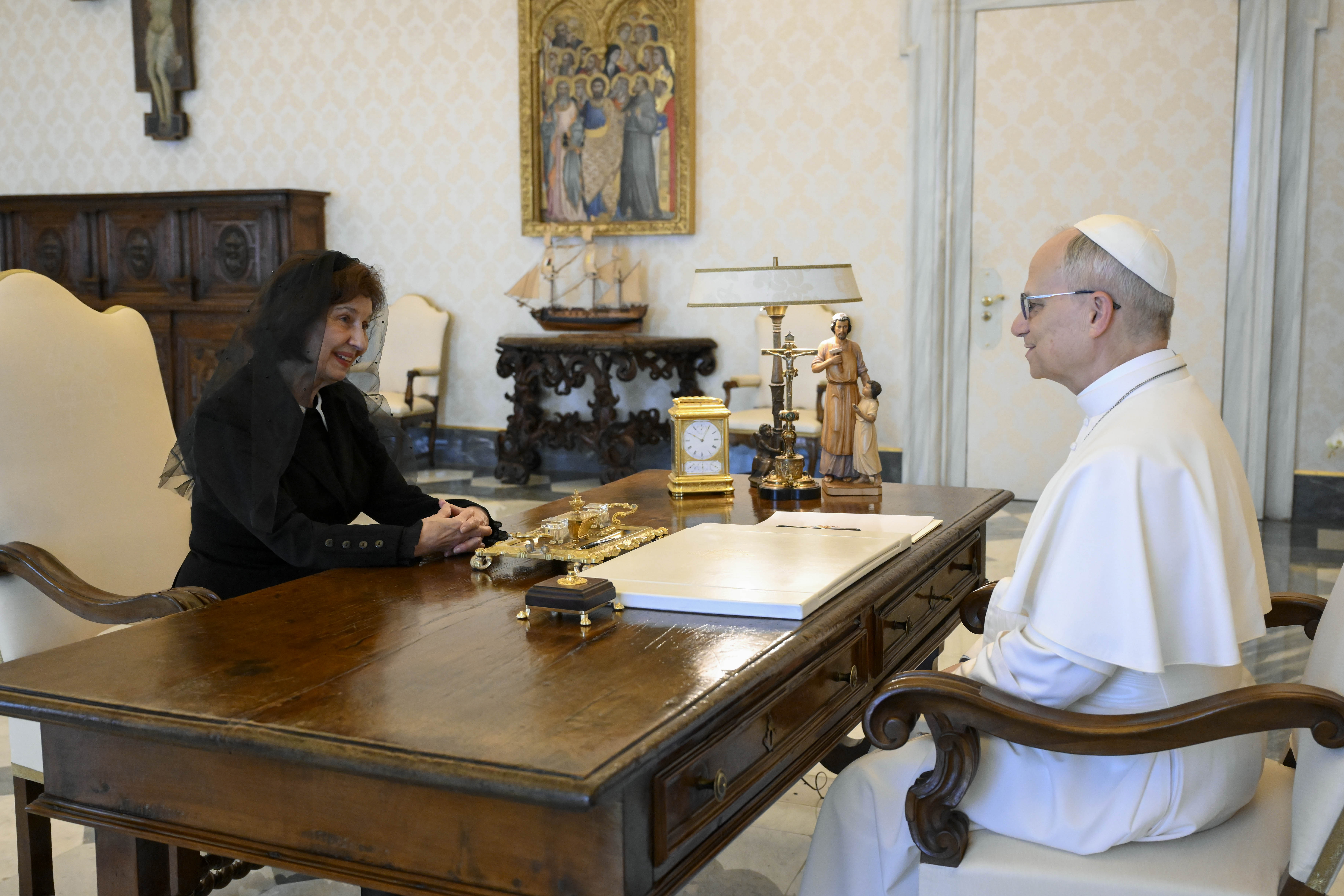
As he began welcoming dignitaries in the lavish halls of the Apostolic Palace, reactivating its historic role in Vatican diplomacy, the pontiff met with North Macedonia’s president, Gordana Siljanovska Davkova.
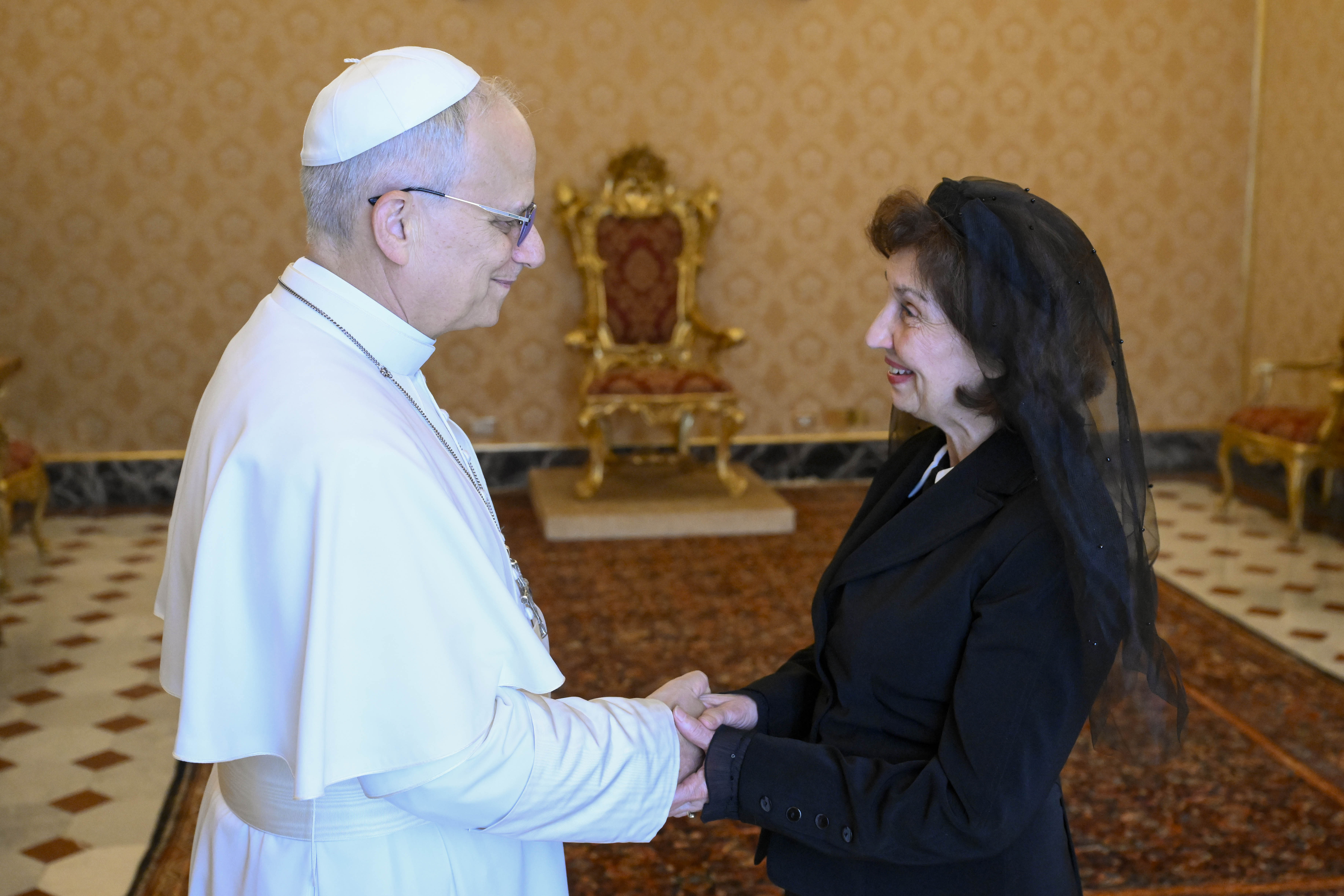
The pope now lives and works in halls once reserved for museum goers — including opulent chambers lined with libraries and gold-trimmed ceilings.
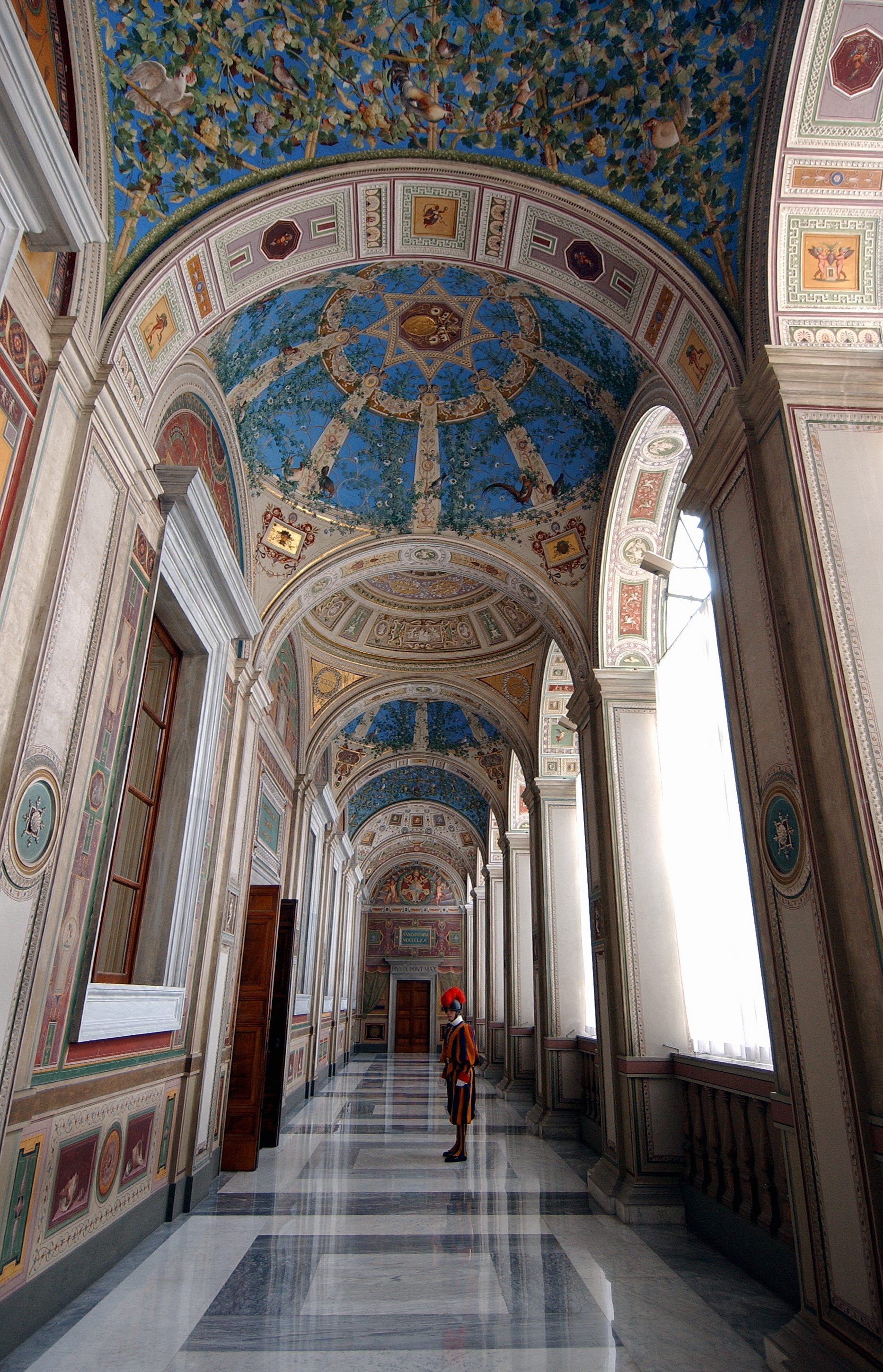
A guard stands watch in the ornately painted corridors of the Apostolic Palace — now once again an active papal residence.
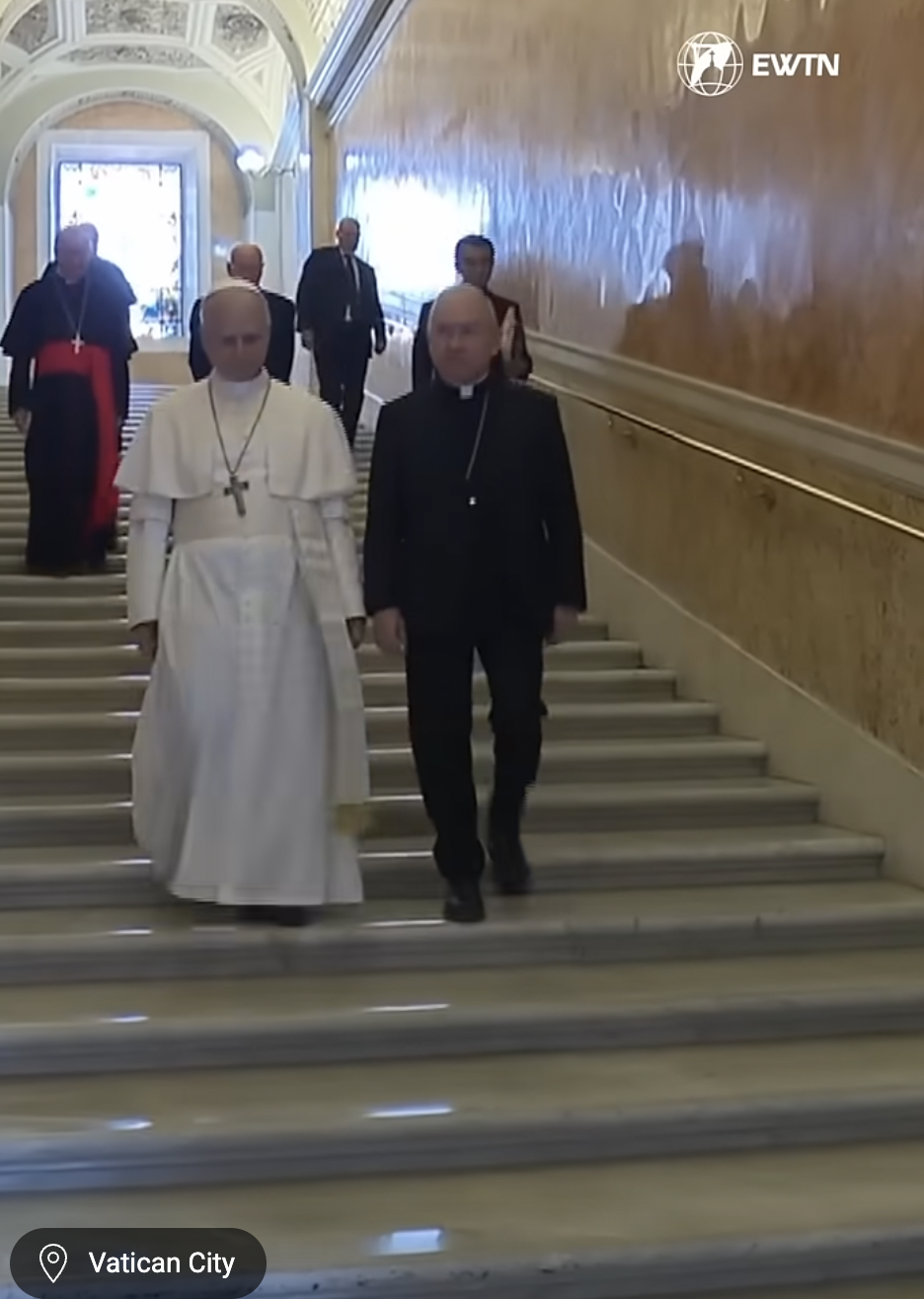
The palace, known for its Renaissance frescoes and marble floors, blends artistic legacy with papal governance.
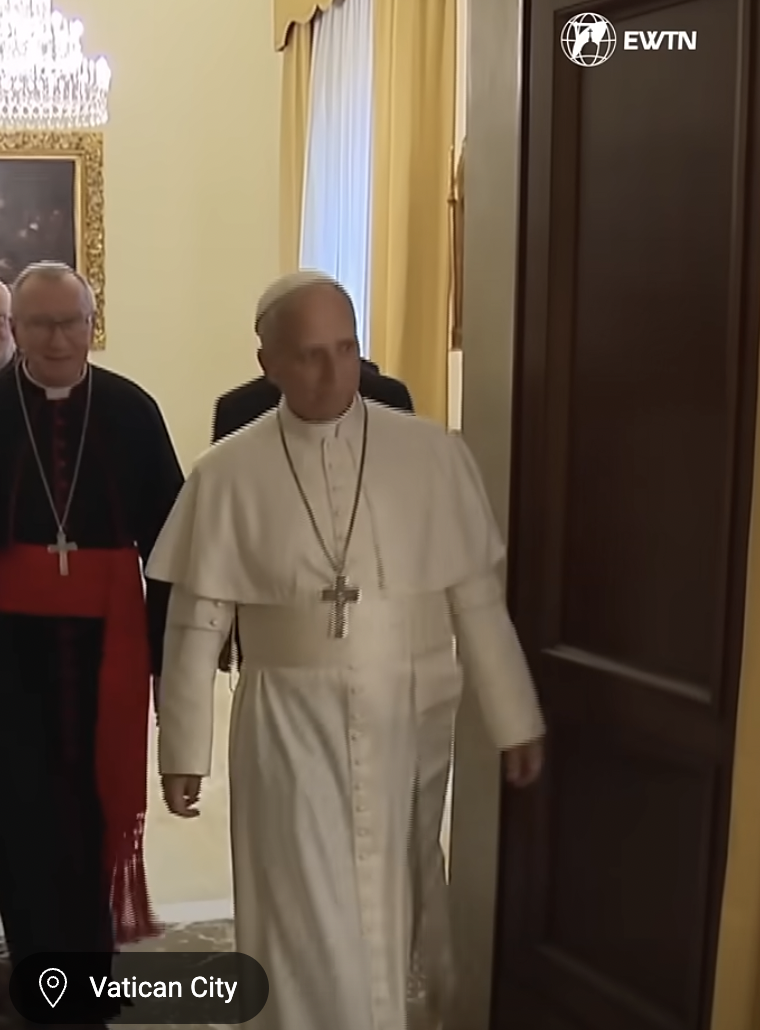
A Vatican consultant publicly defended Pope Leo’s choice to move into the palace, citing a need for privacy and dignity following his lifestyle change, not excess.
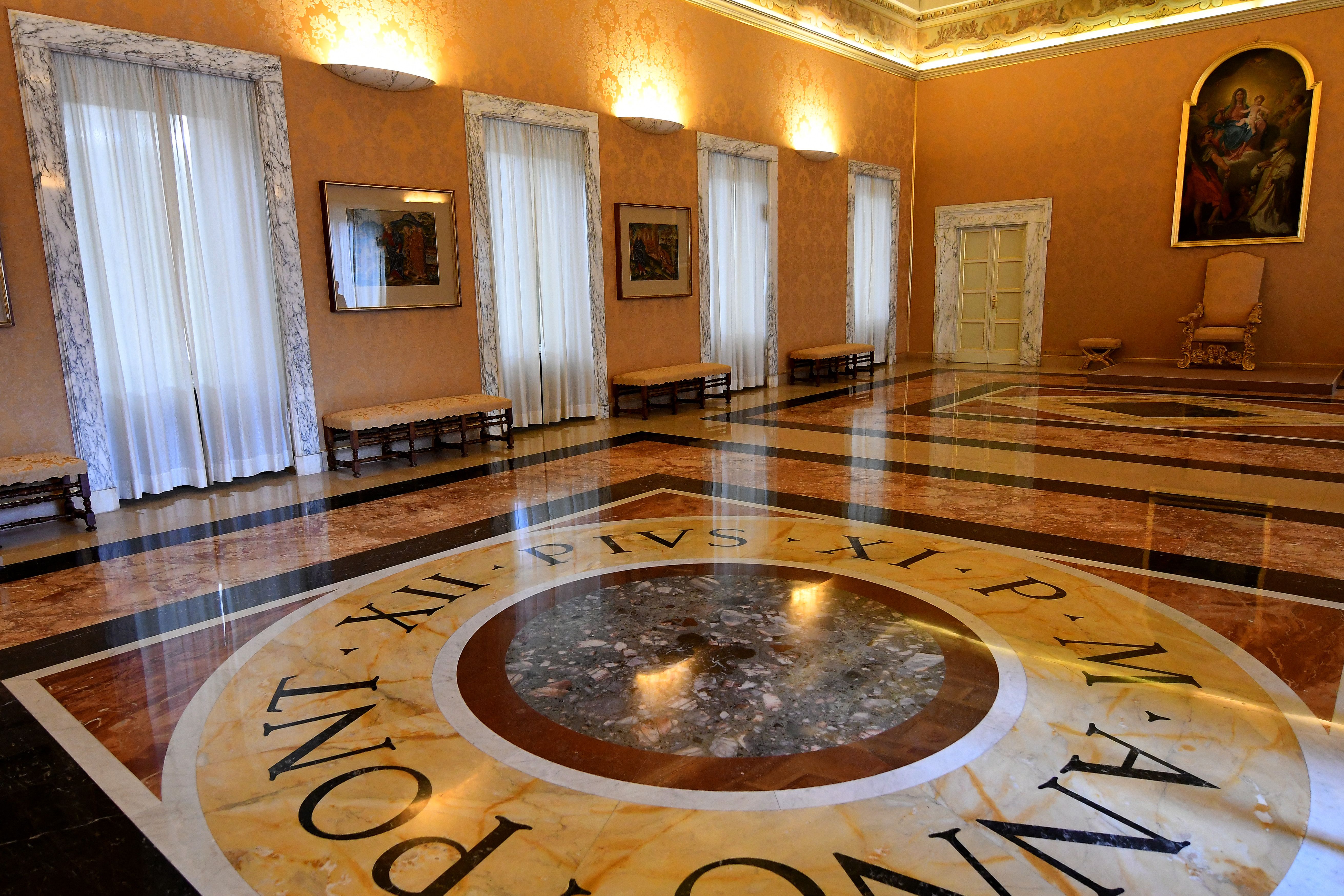
The grand papal apartments had remained largely unused for over a decade, as Pope Francis chose the humbler Casa Santa Marta guesthouse and even turned the summer retreat of Castel Gandolfo into a public museum.
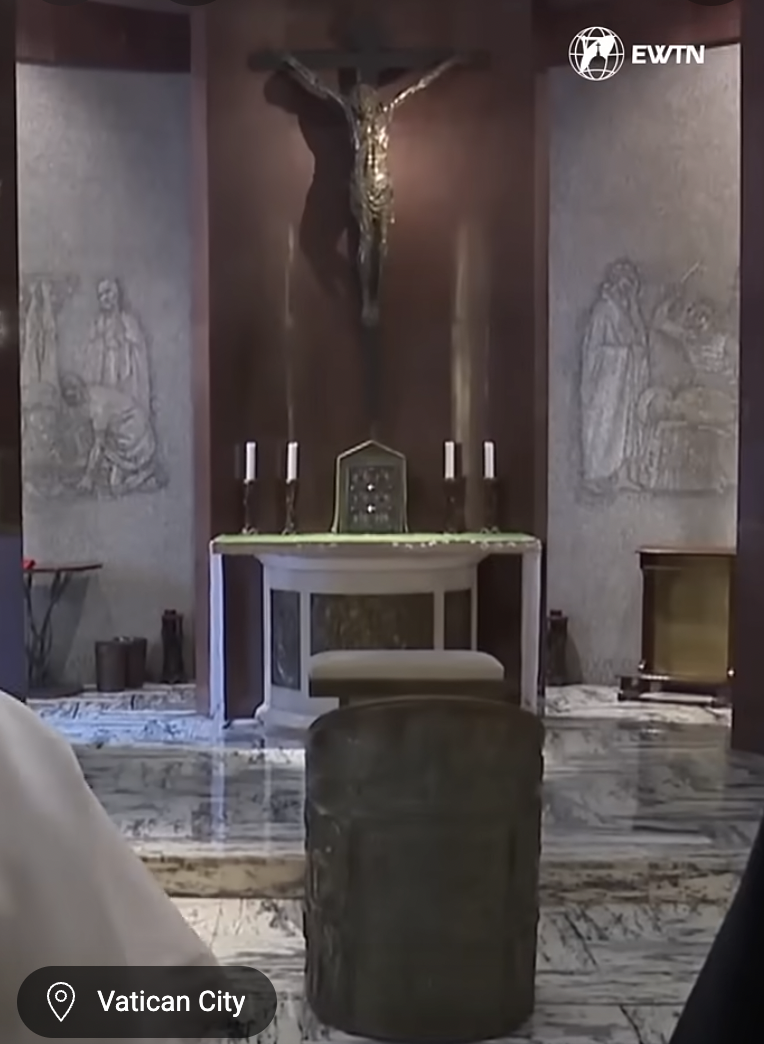
The once-museum halls of the Apostolic Palace have now reopened as living quarters, including the ornate reception room bearing the seal of a past pope.
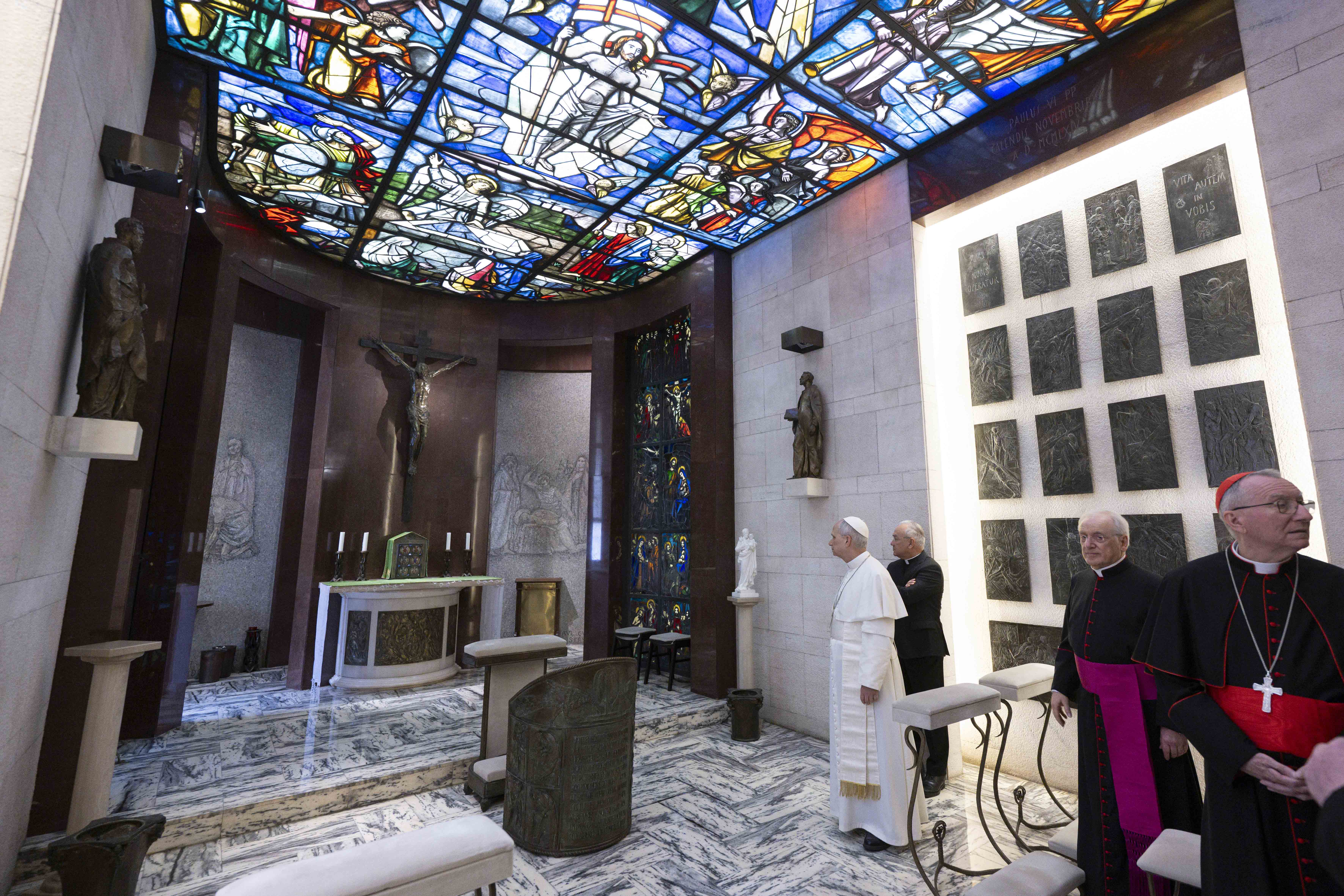
Inside the private chapel, Pope Leo XIV paused in silent prayer, surrounded by marble, mosaics, and centuries of sacred tradition.
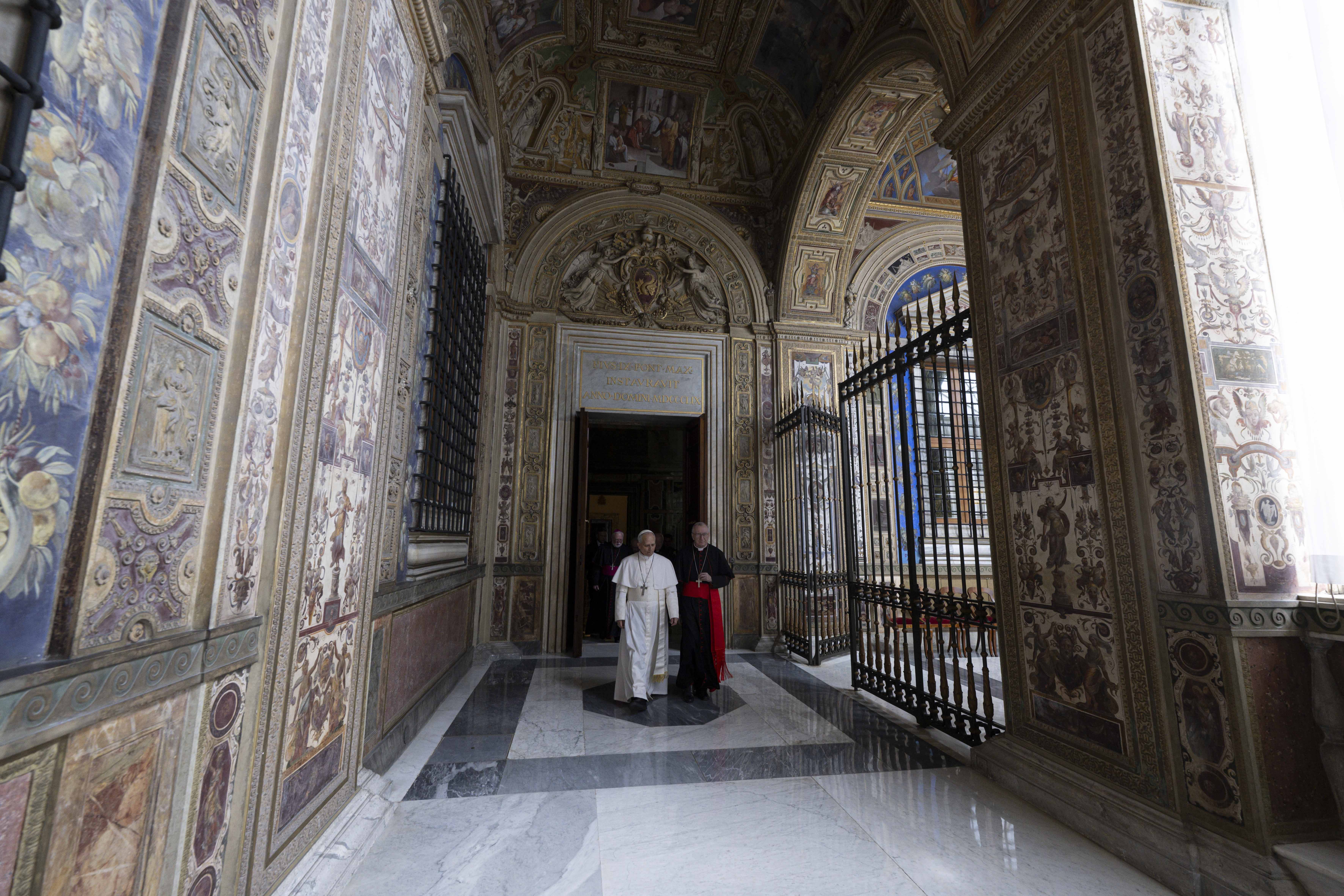
Cardinals accompanied him through the restored apartment wing, which had been closed since Pope Francis decided to live elsewhere.
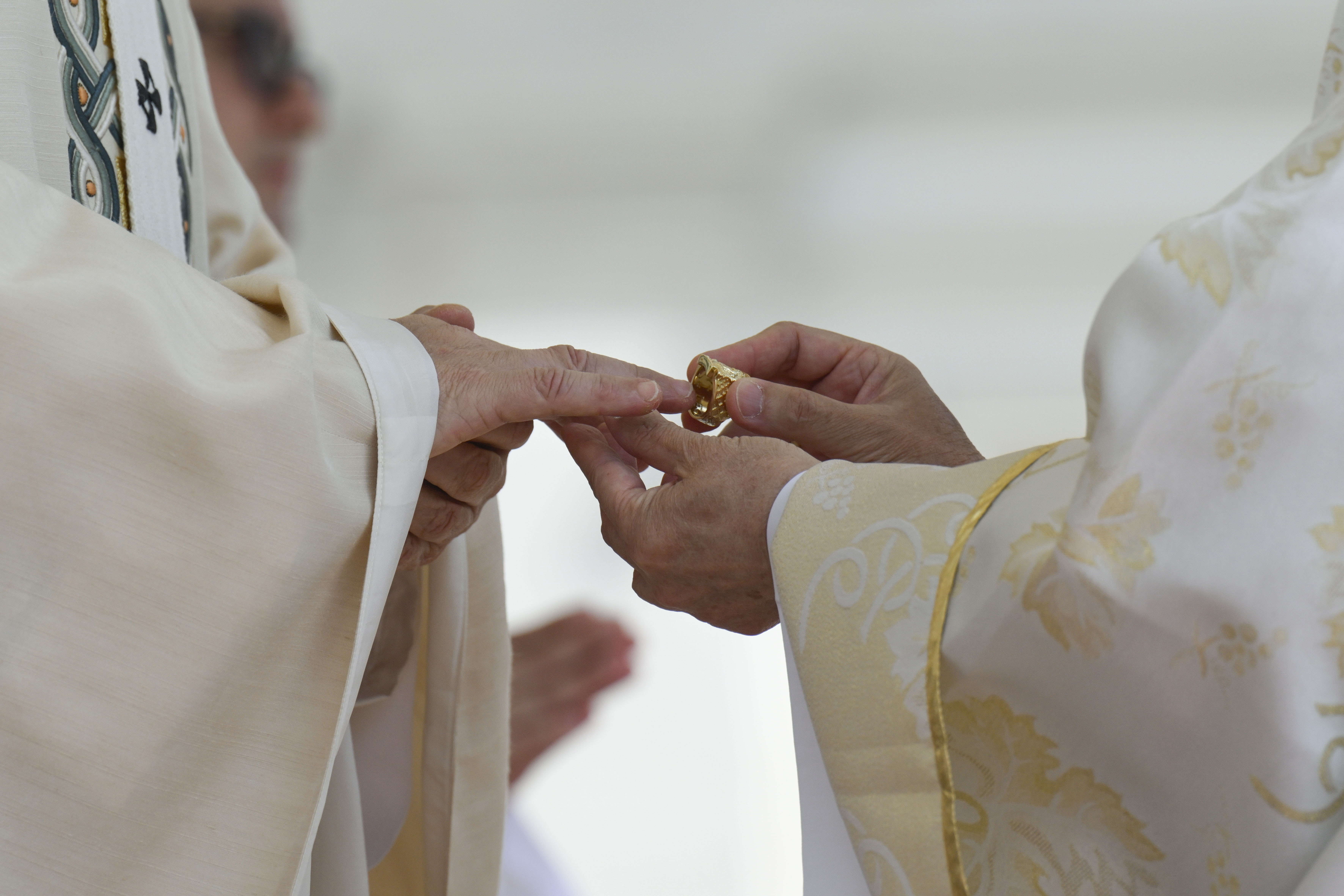
The traditional gold Fisherman’s Ring — newly crafted for each pope — was placed on Pope Leo’s hand, marking his full assumption of the papal office.
The ring, valued near $600,000, bears the image of St. Peter casting his net — a nod to the pope’s role as spiritual fisher of souls.
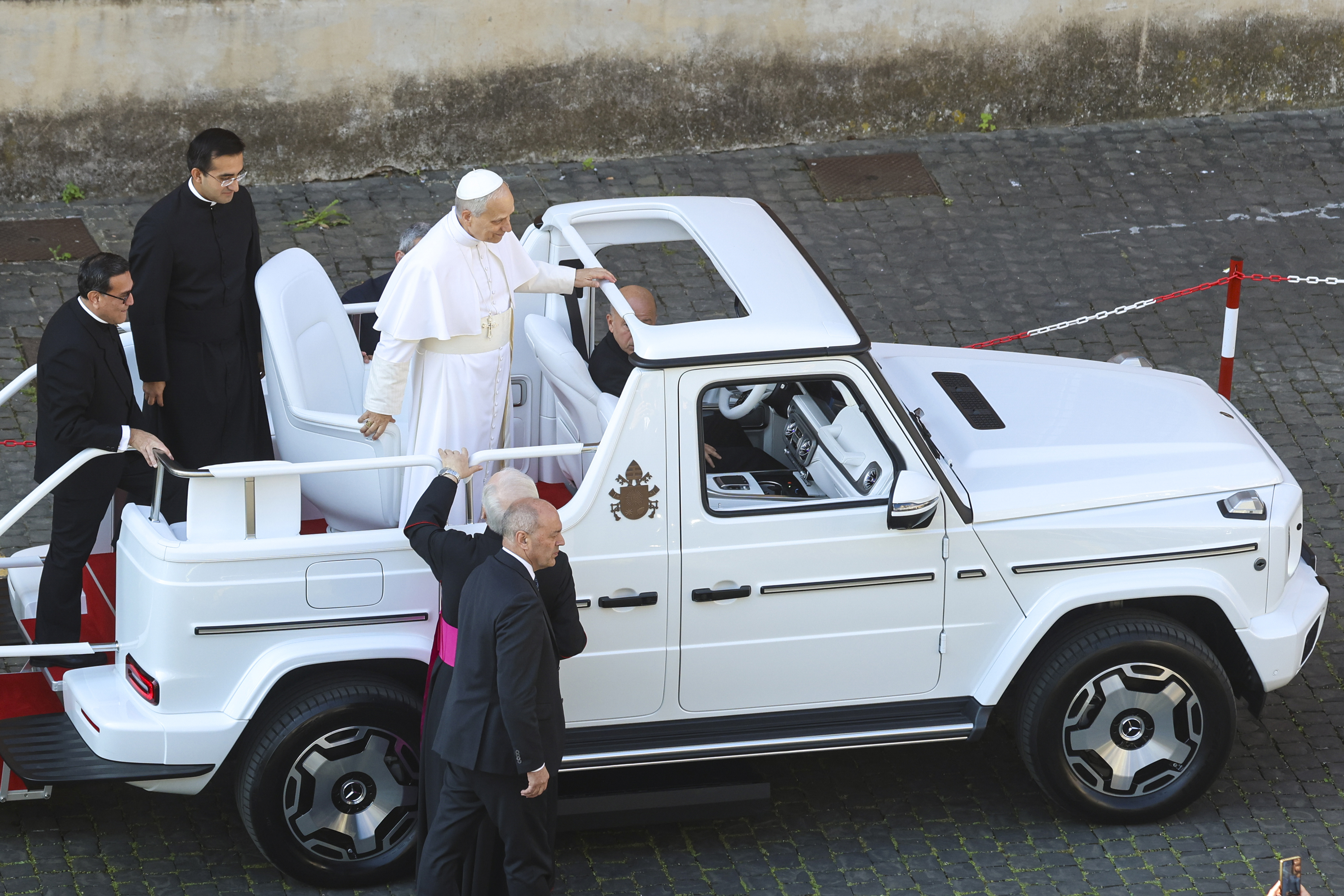
The latest addition to the Vatican motor pool — a custom-built, fully electric Mercedes-Benz popemobile, reportedly worth $500,000.
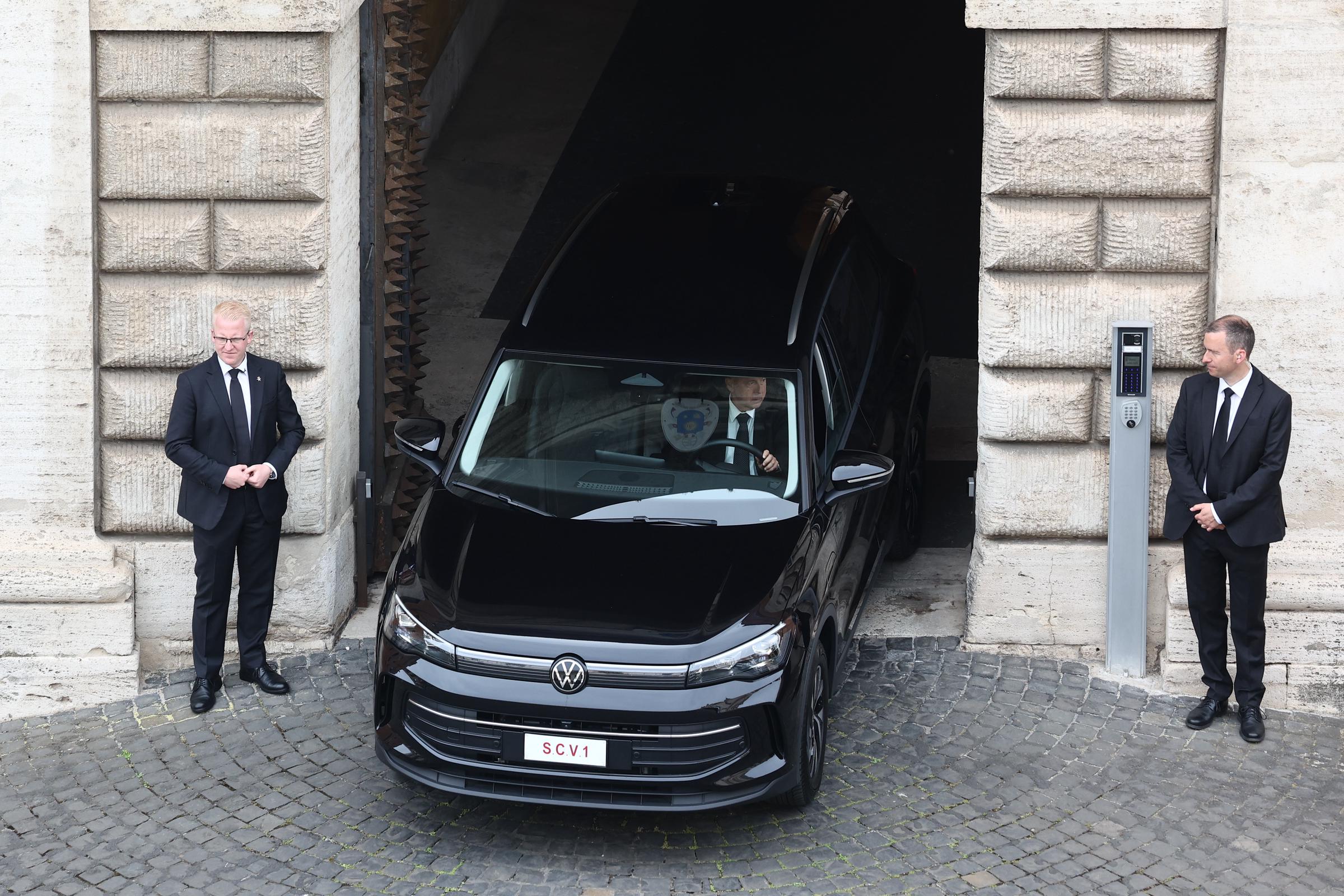
Pope Leo XIV was also seen leaving the Apostolic Palace in a new black Volkswagen bearing the SCV1 license plate — the official mark of the Holy See.
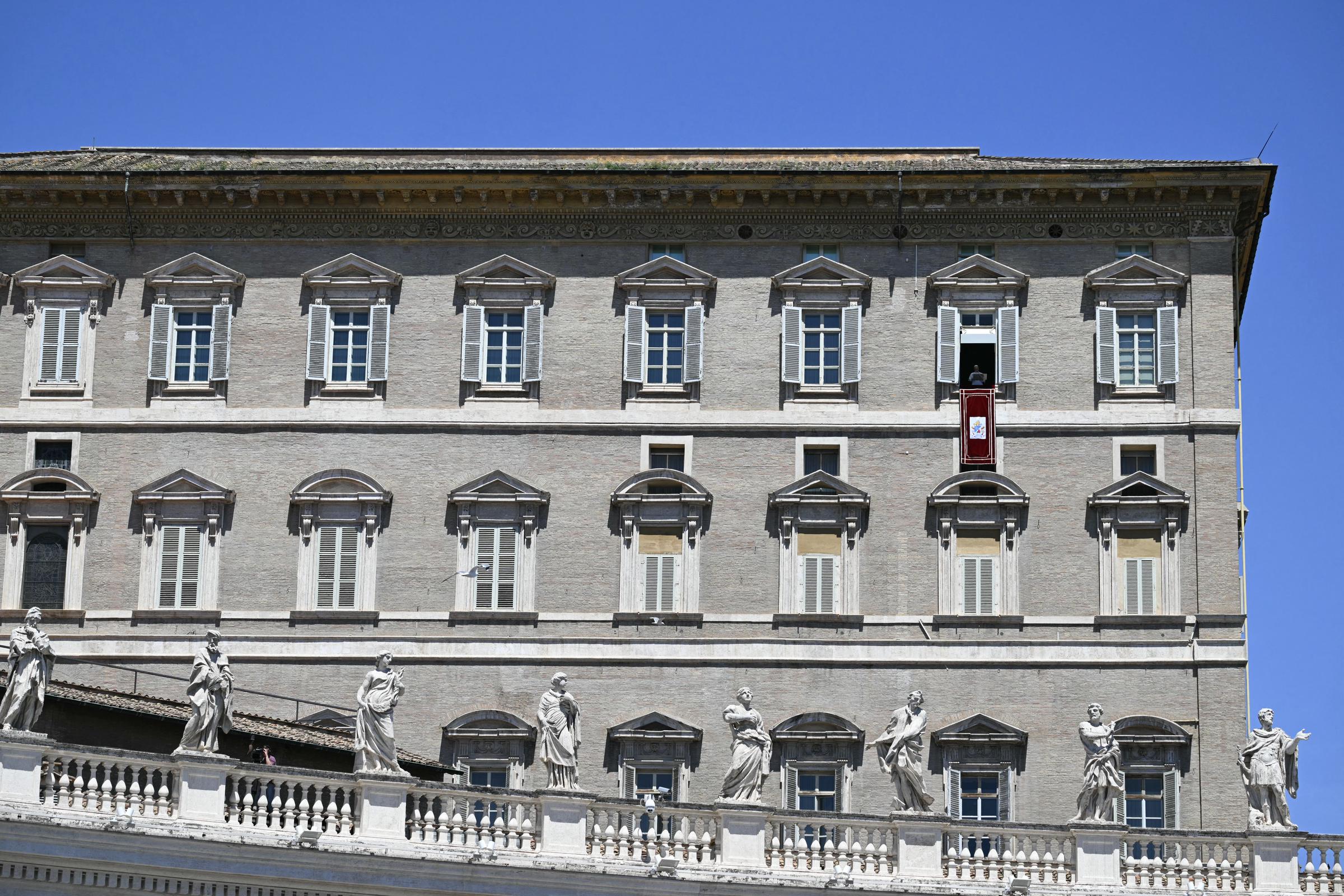
For the first time in over a decade, the papal banner flew from the Apostolic Palace’s upper window, signaling that a new pope once again resides there.
